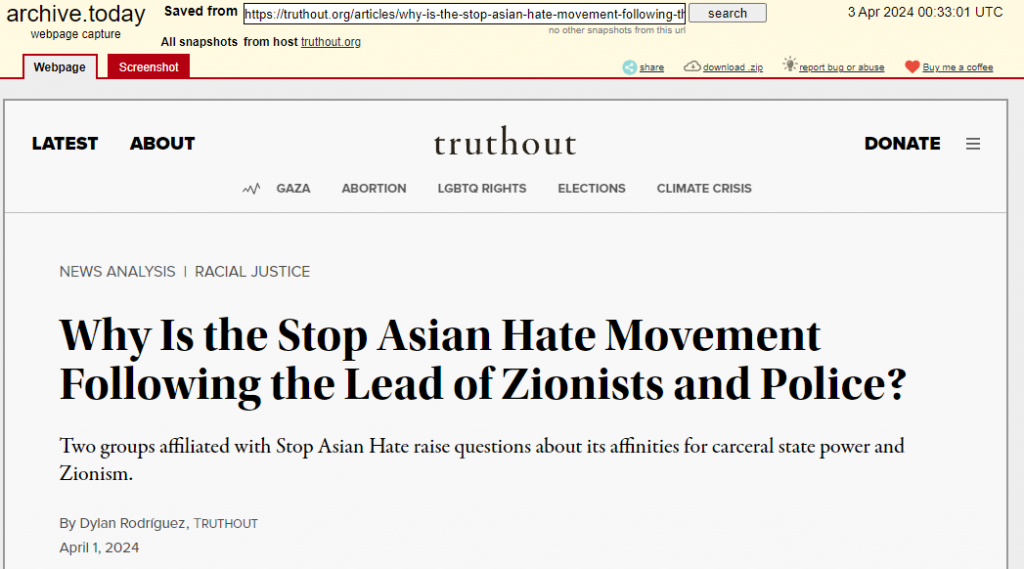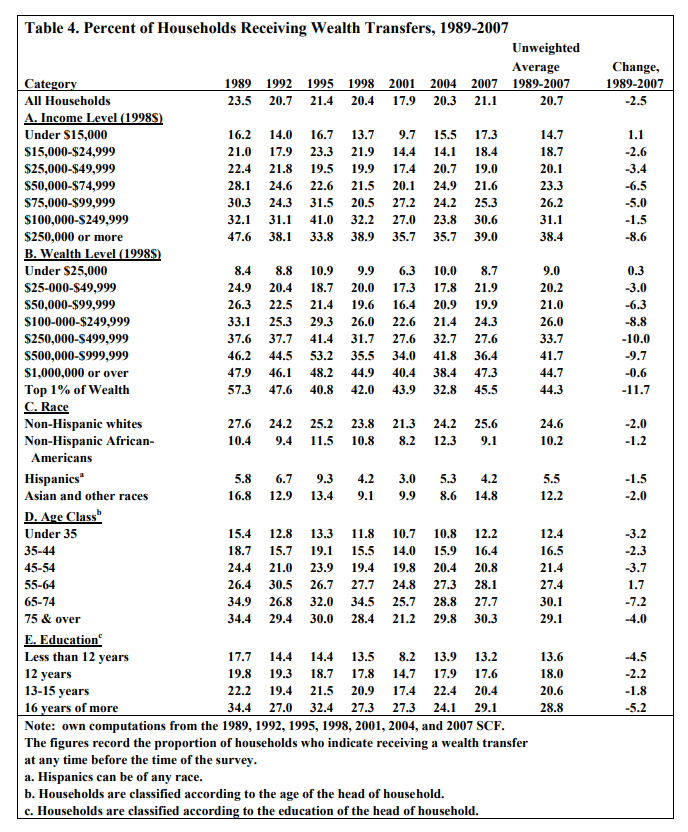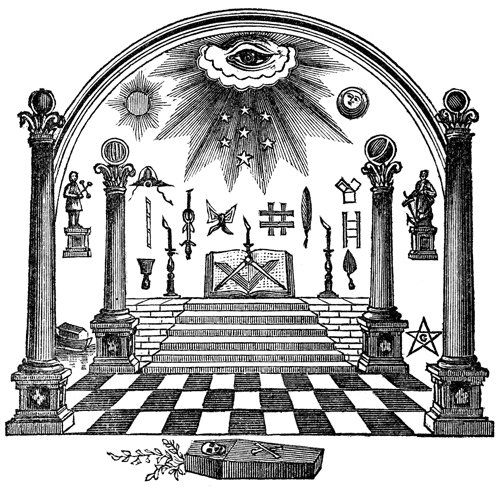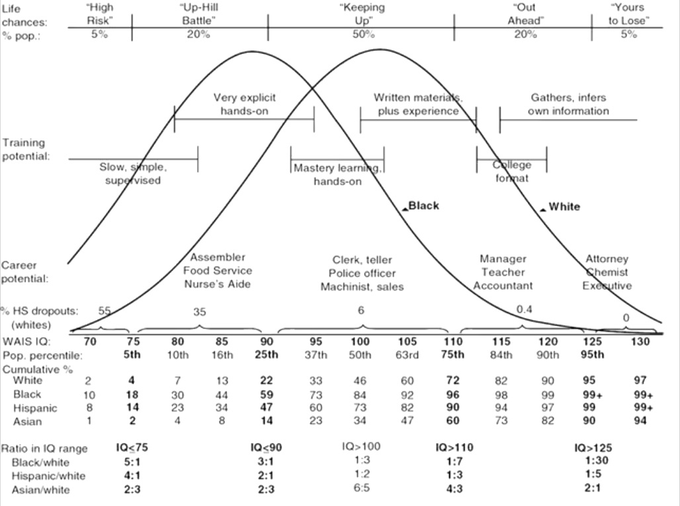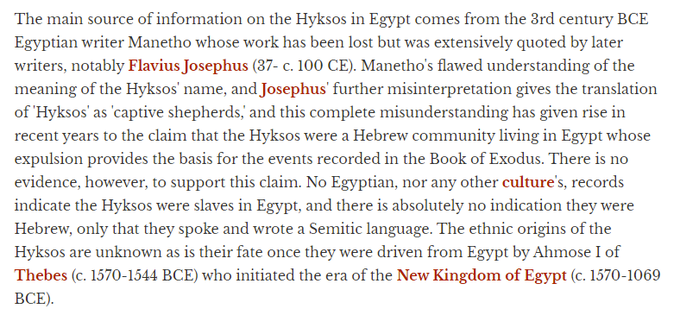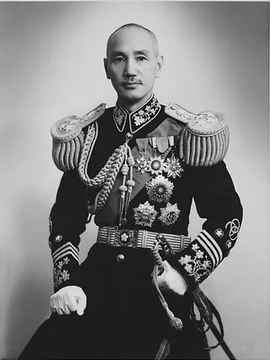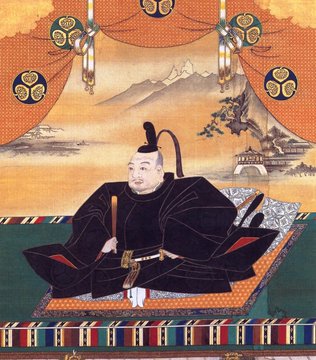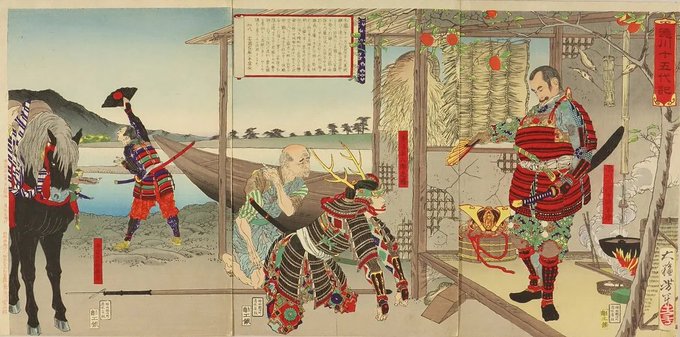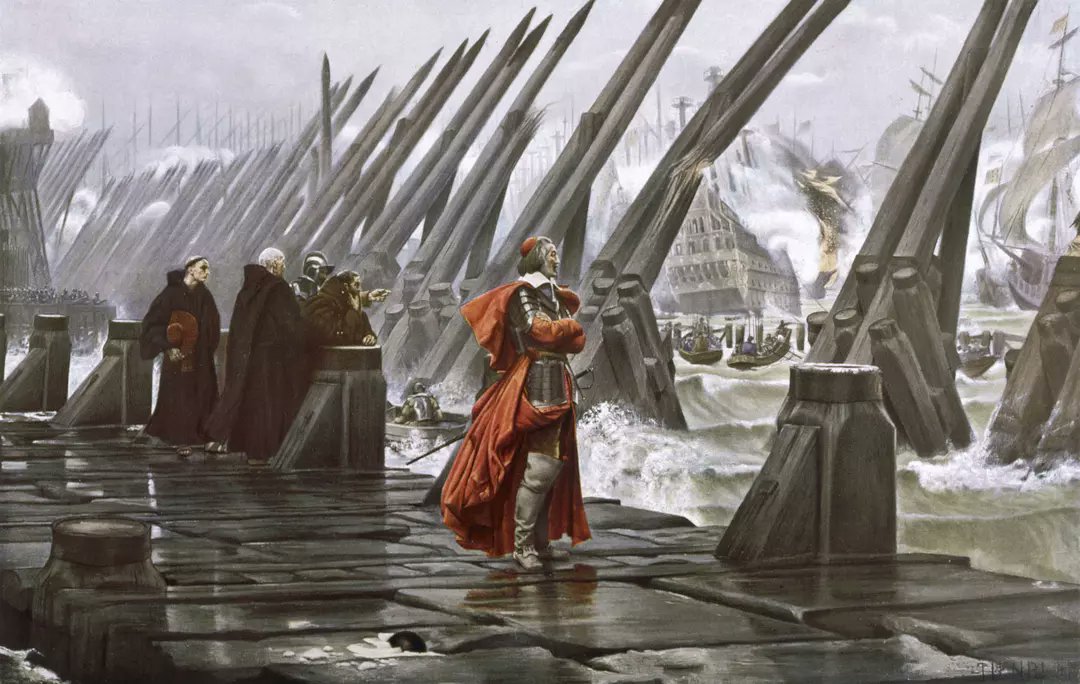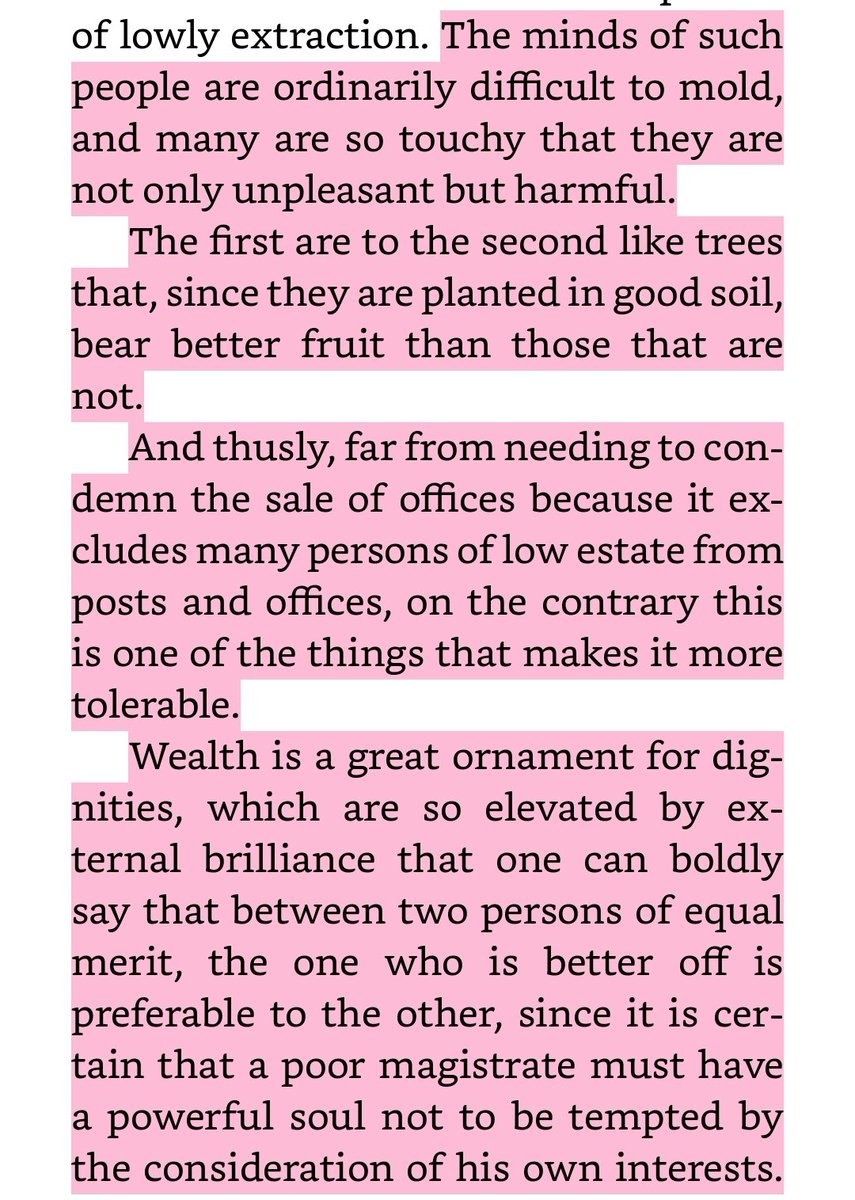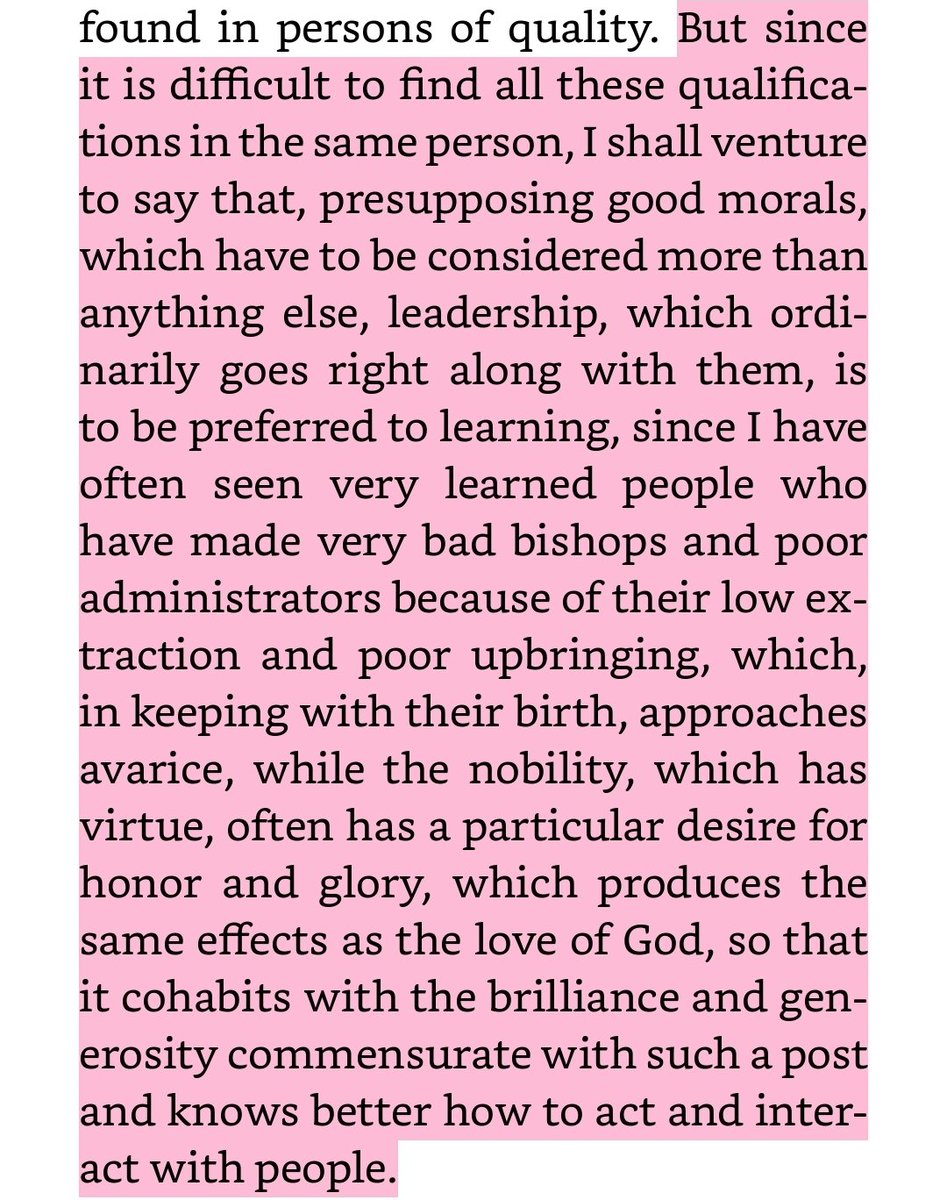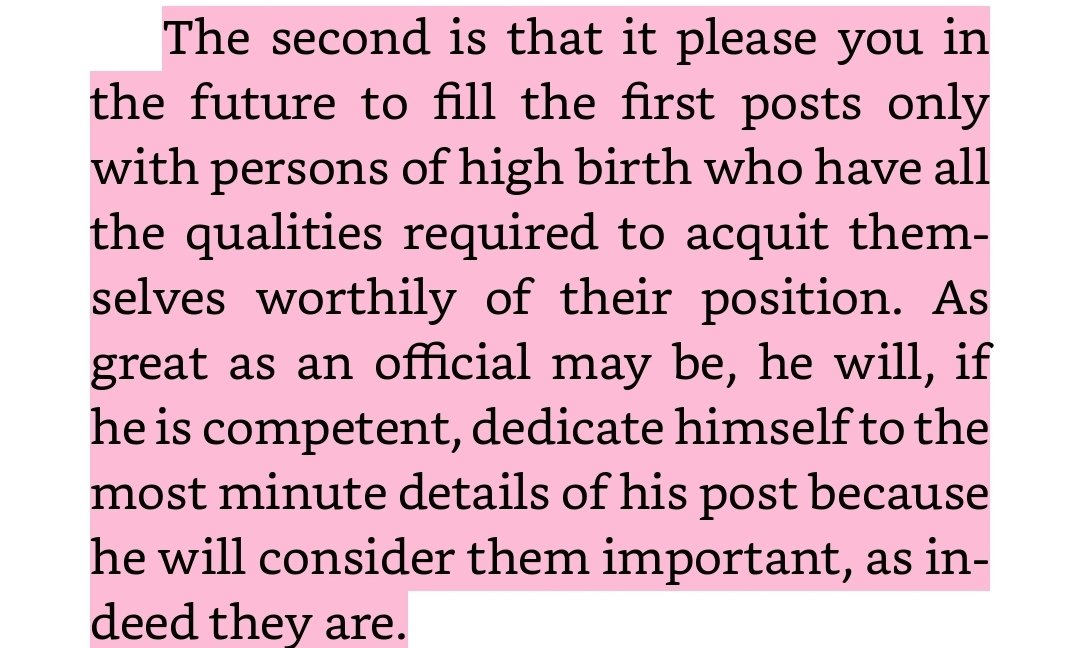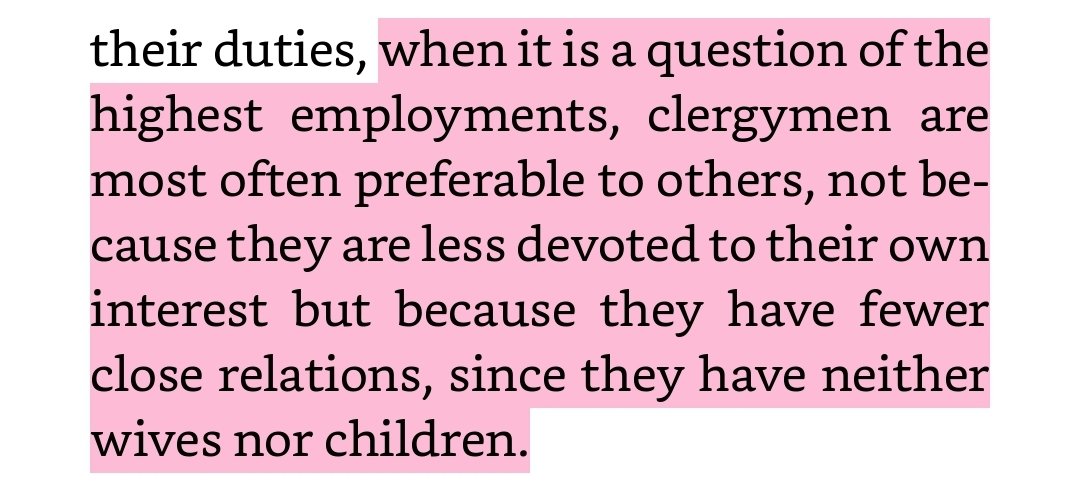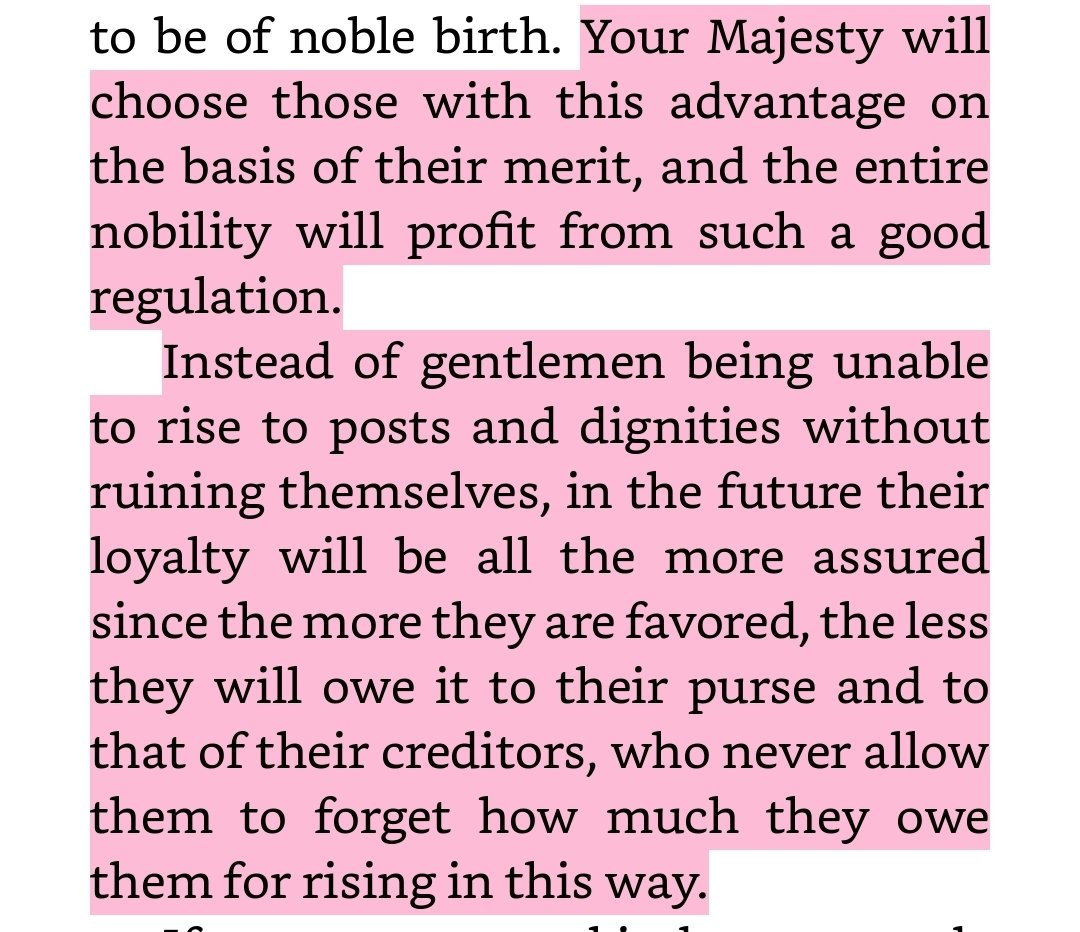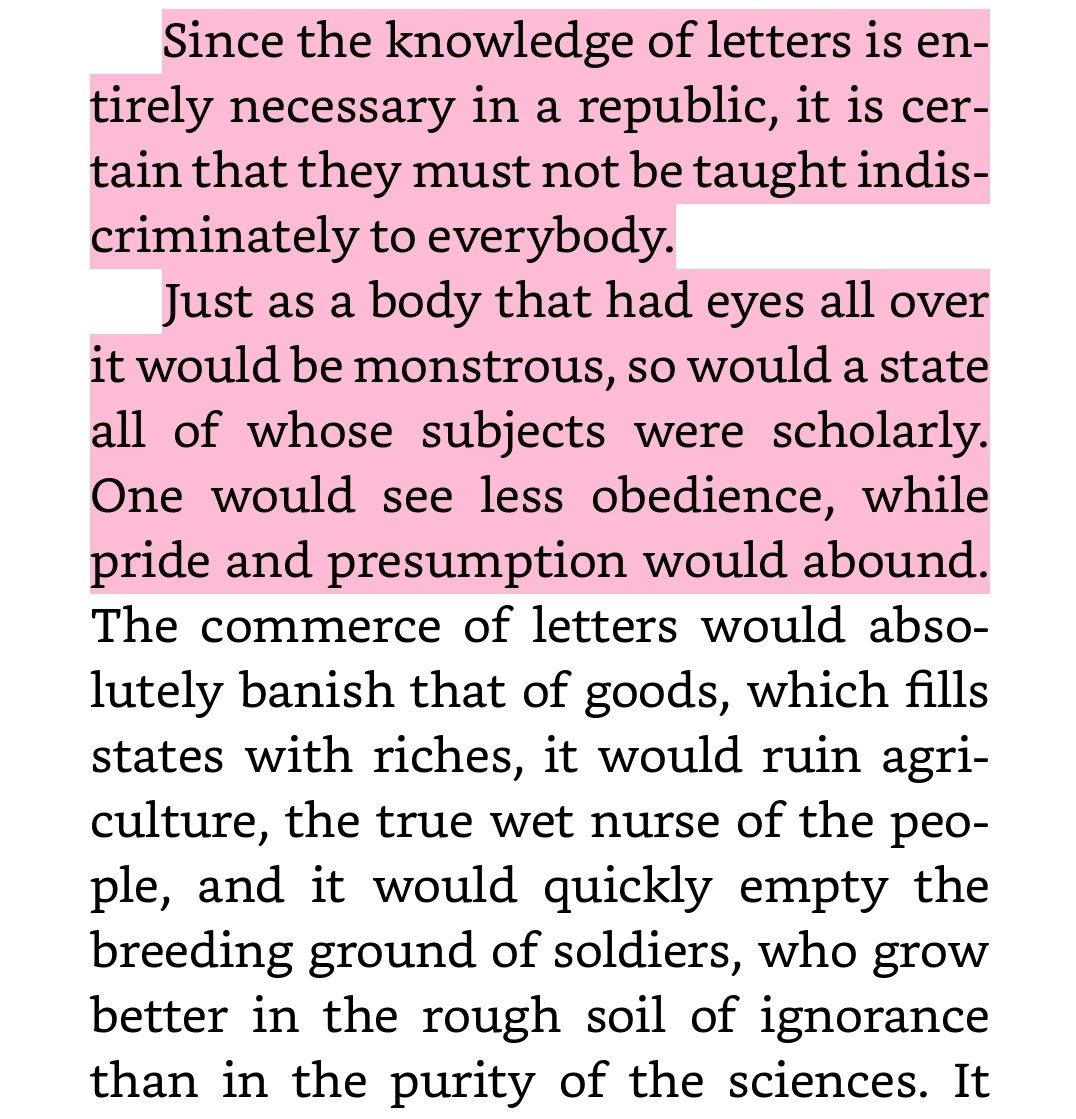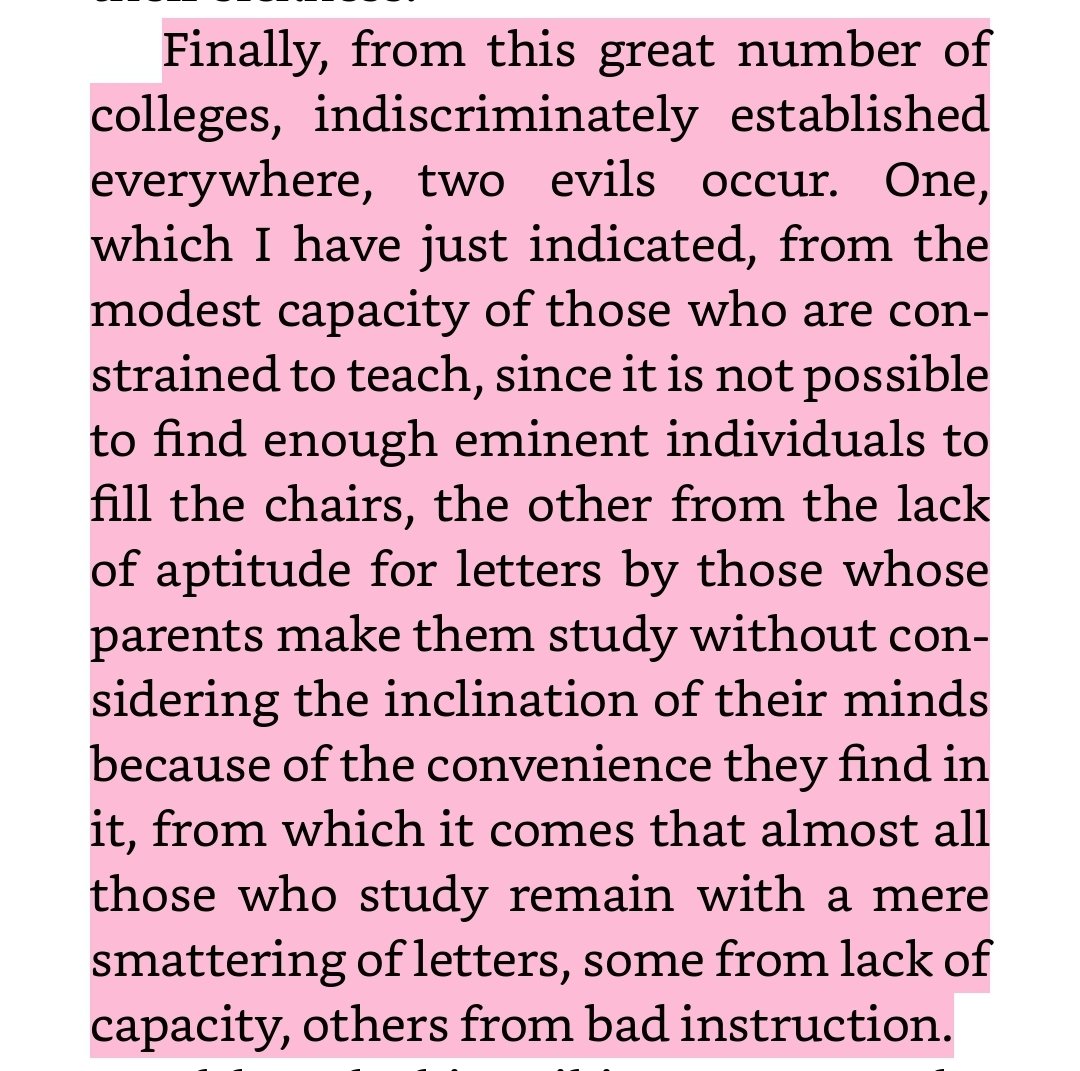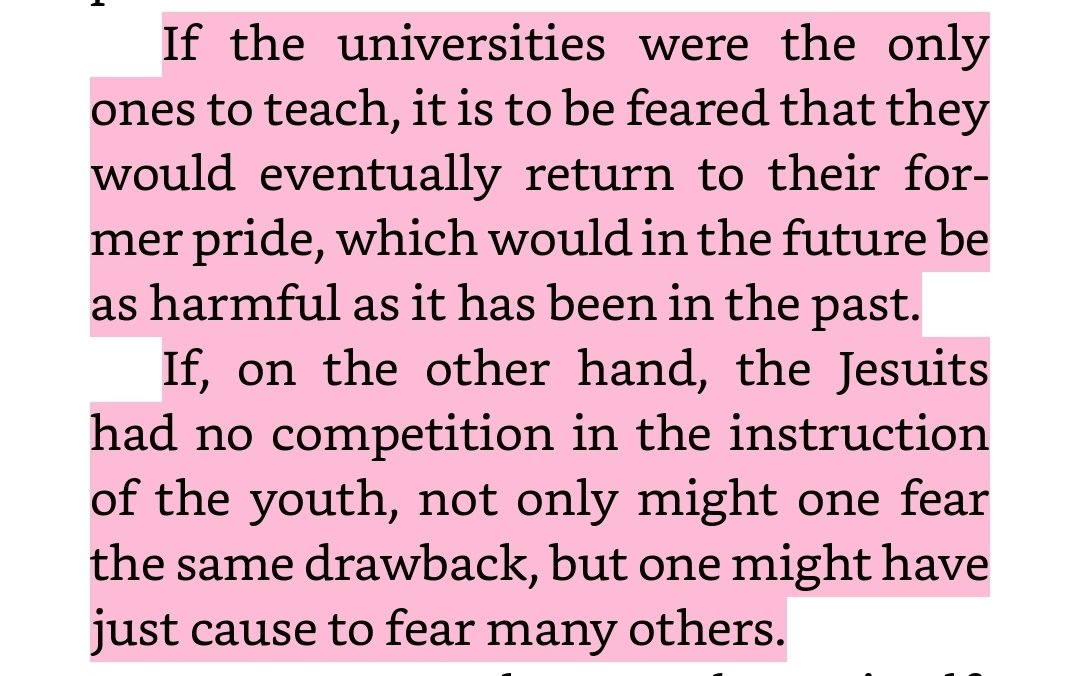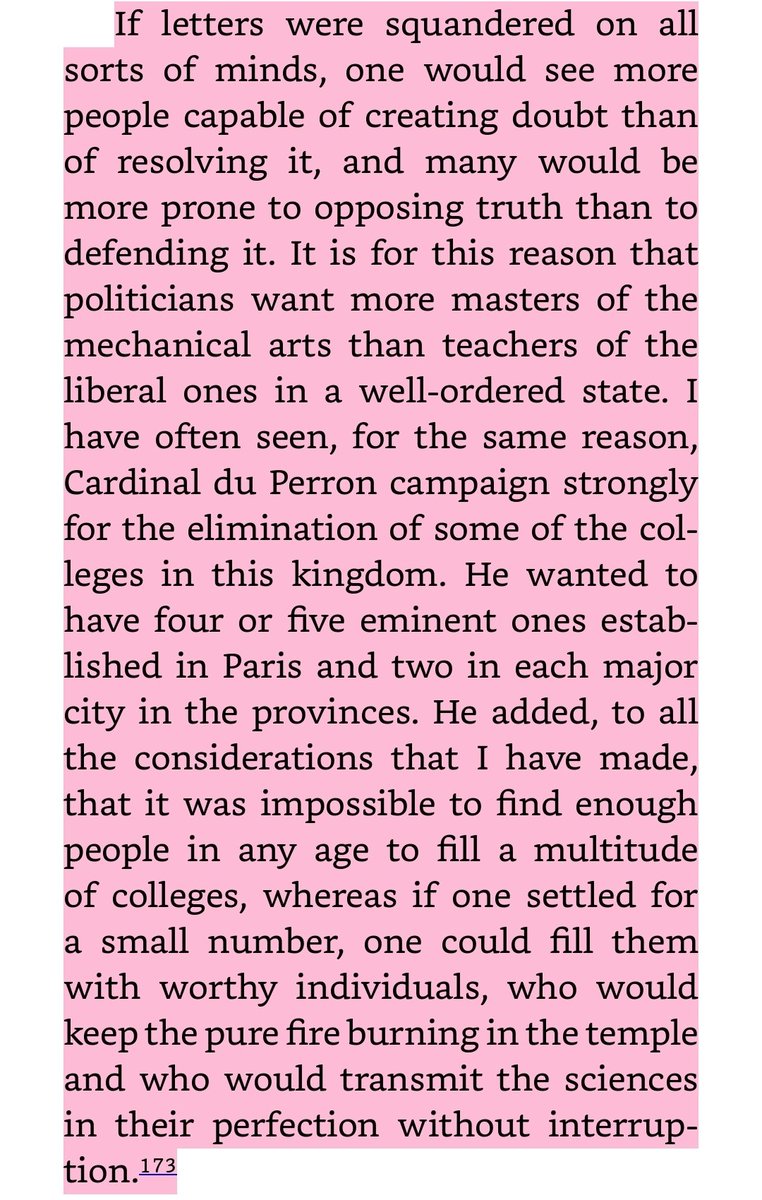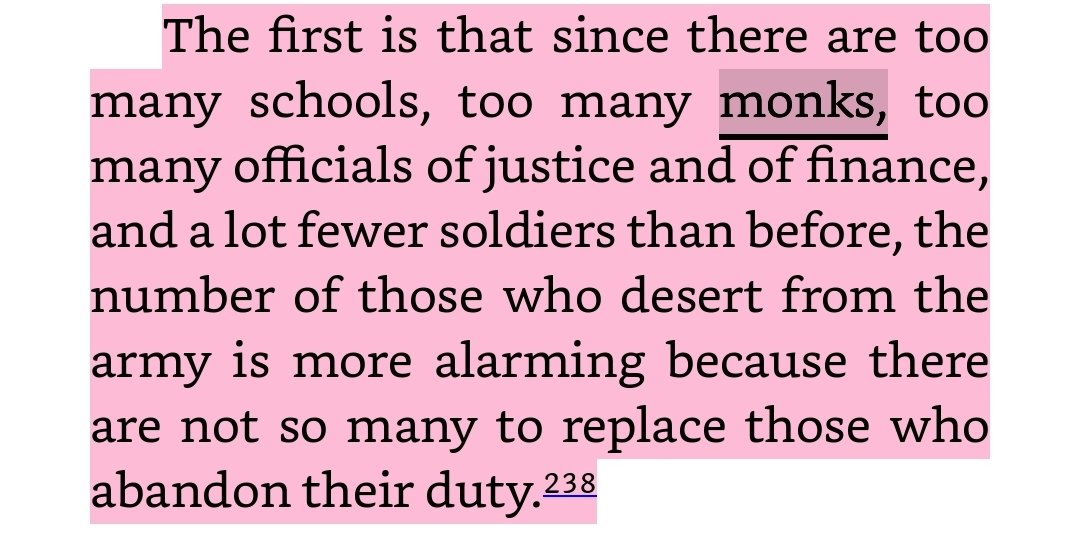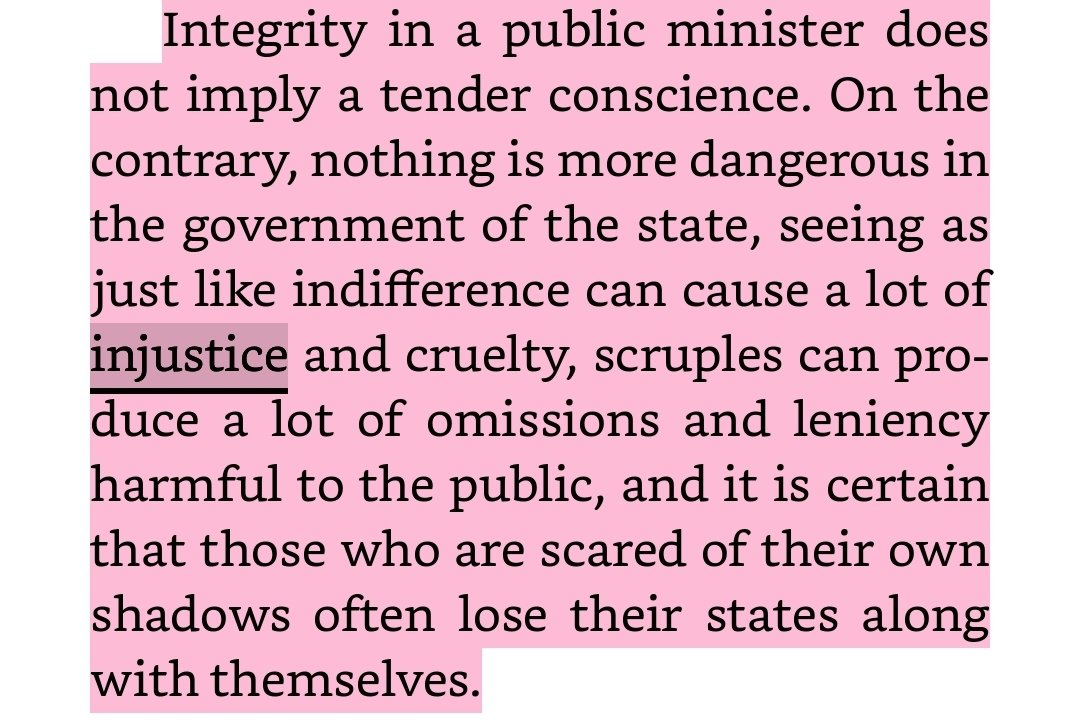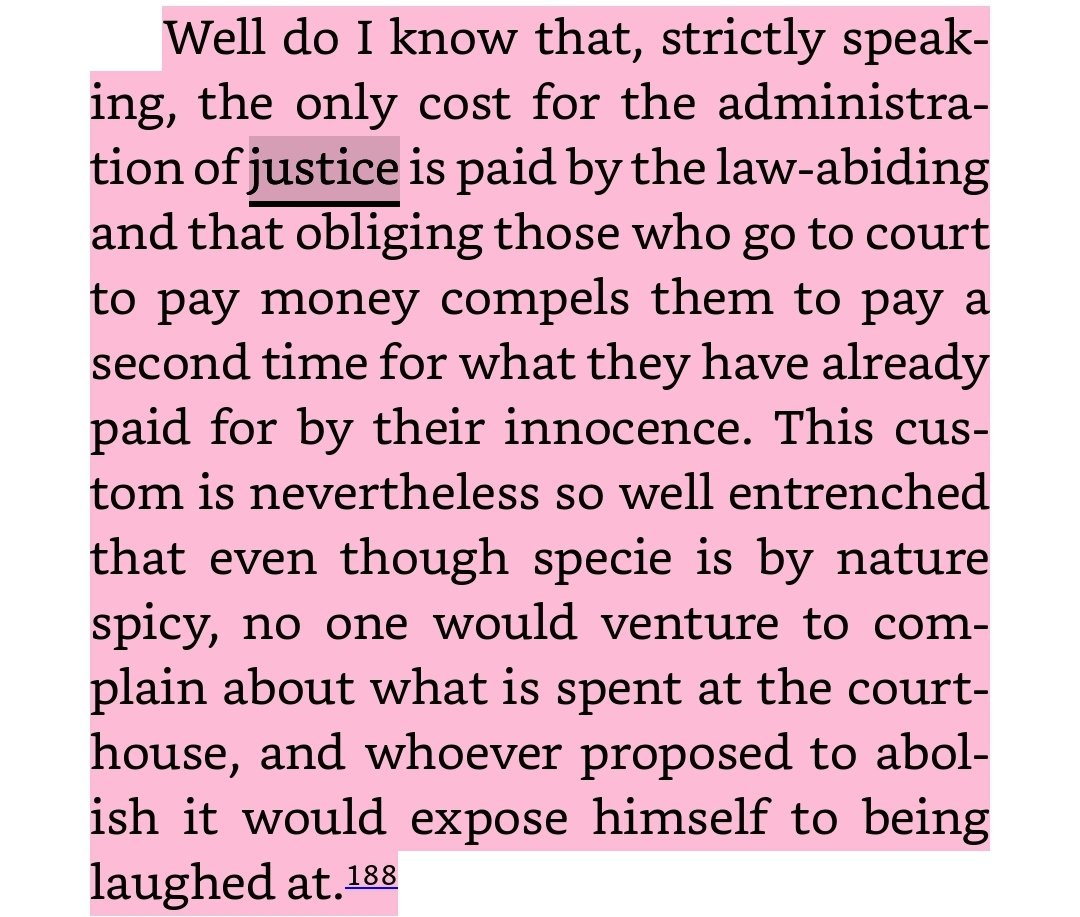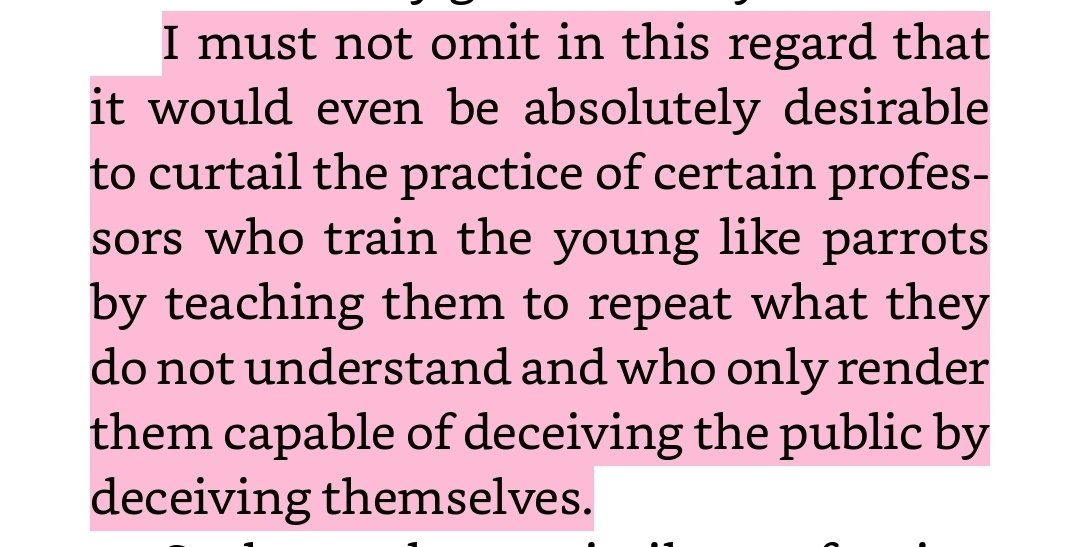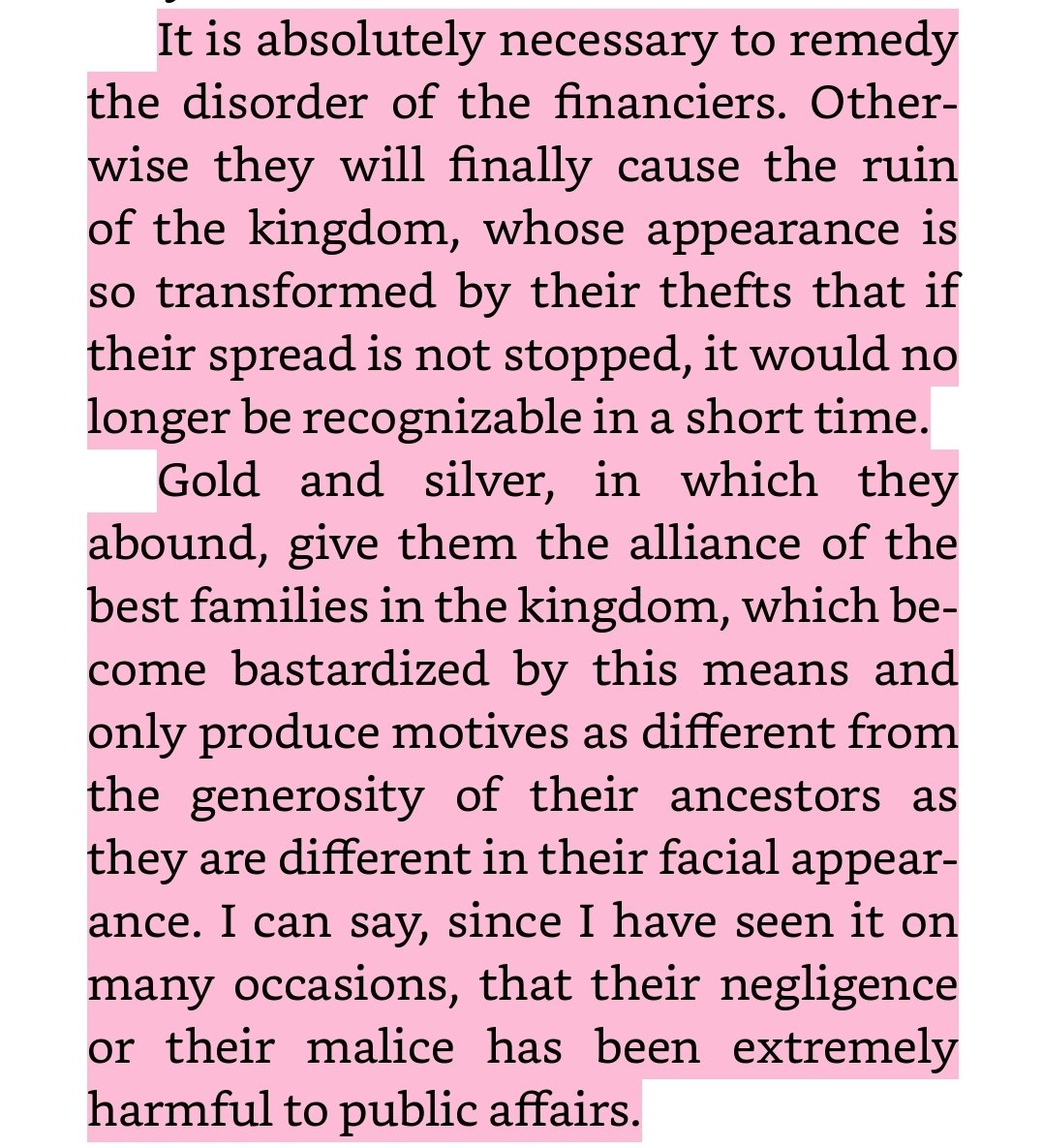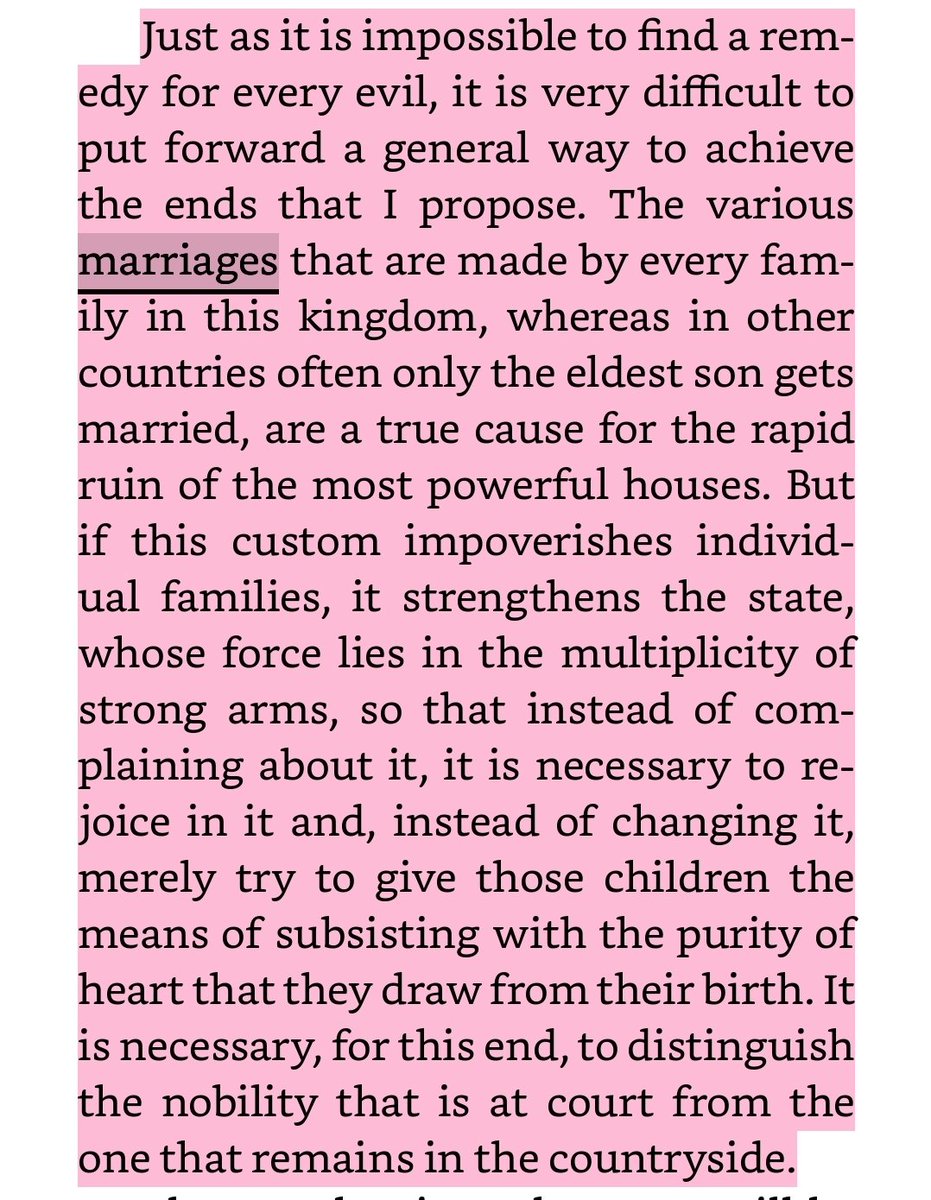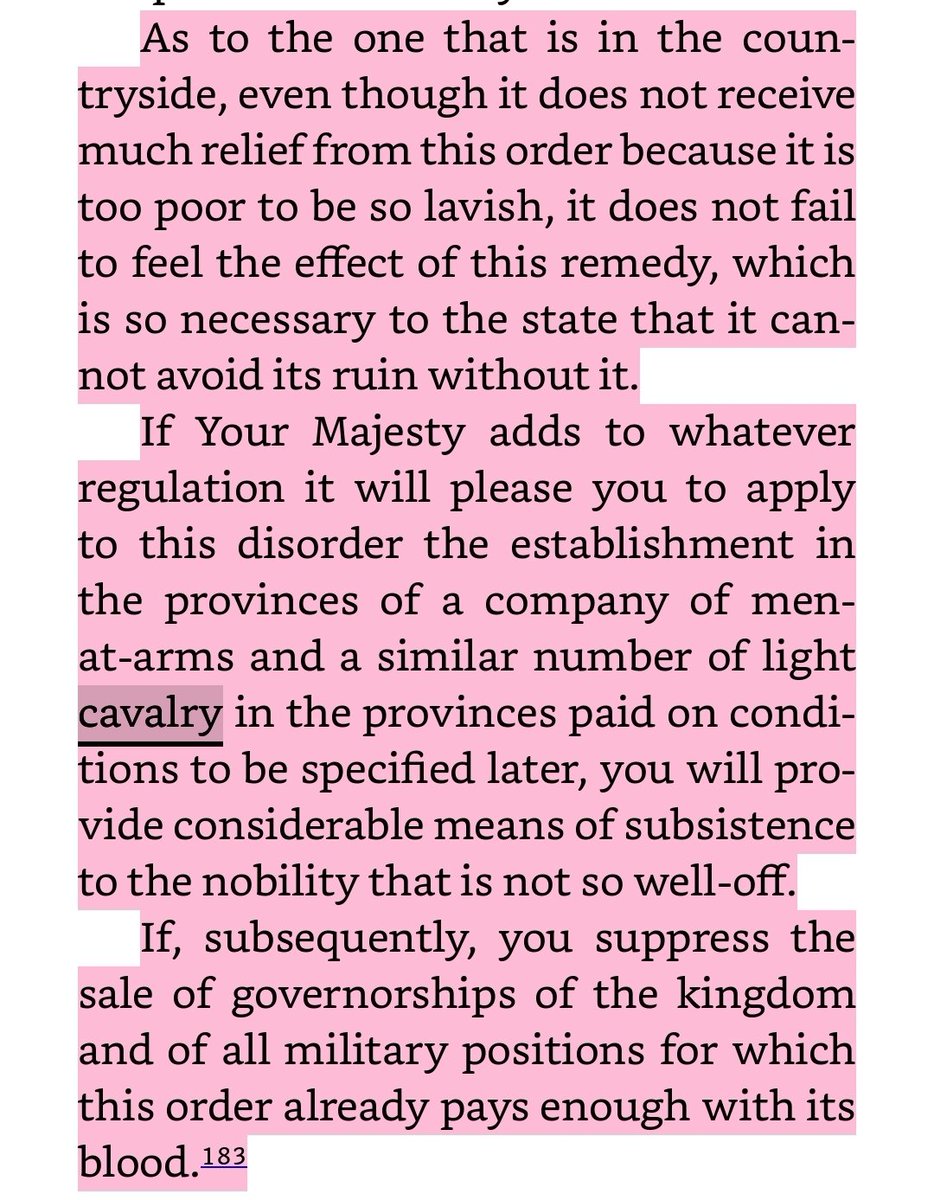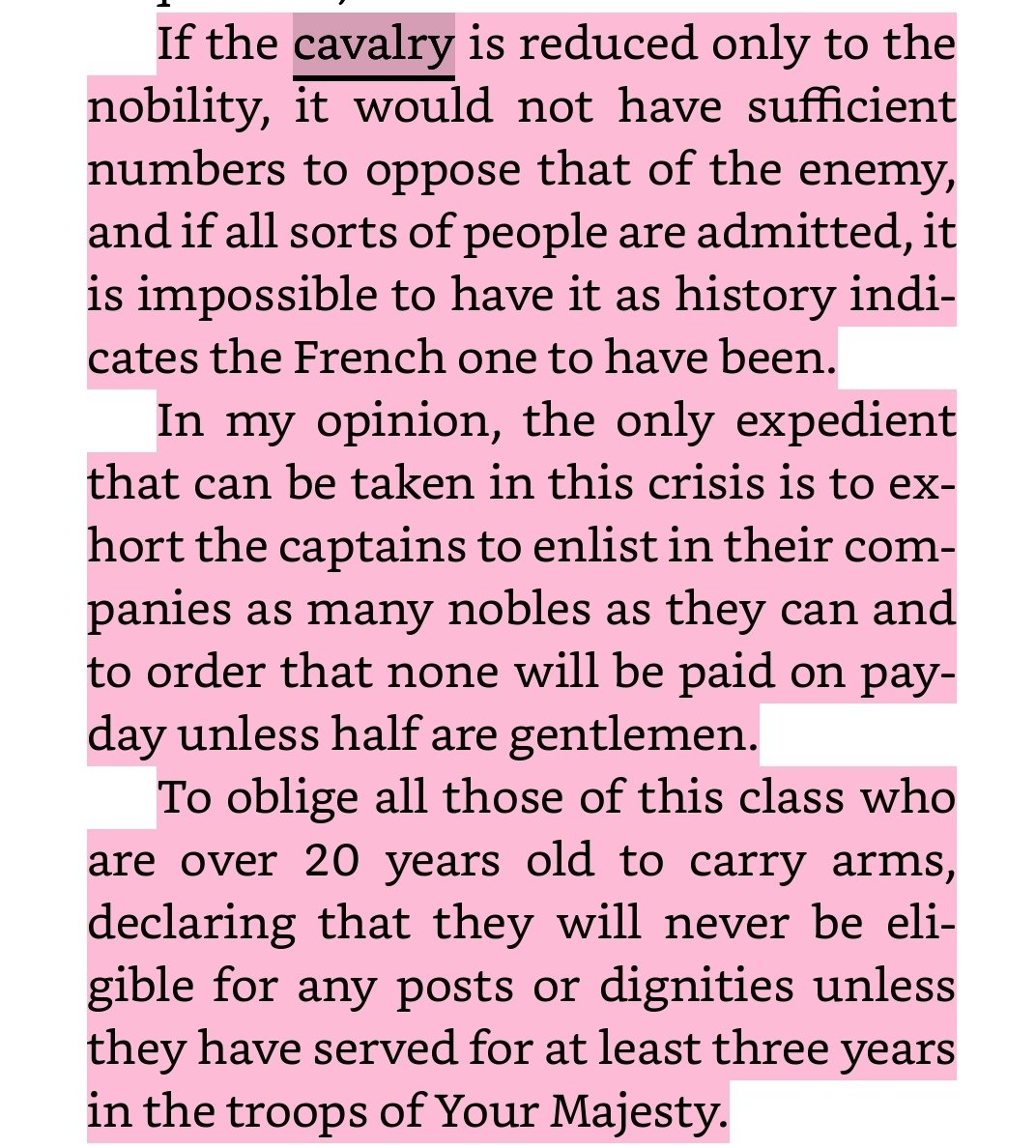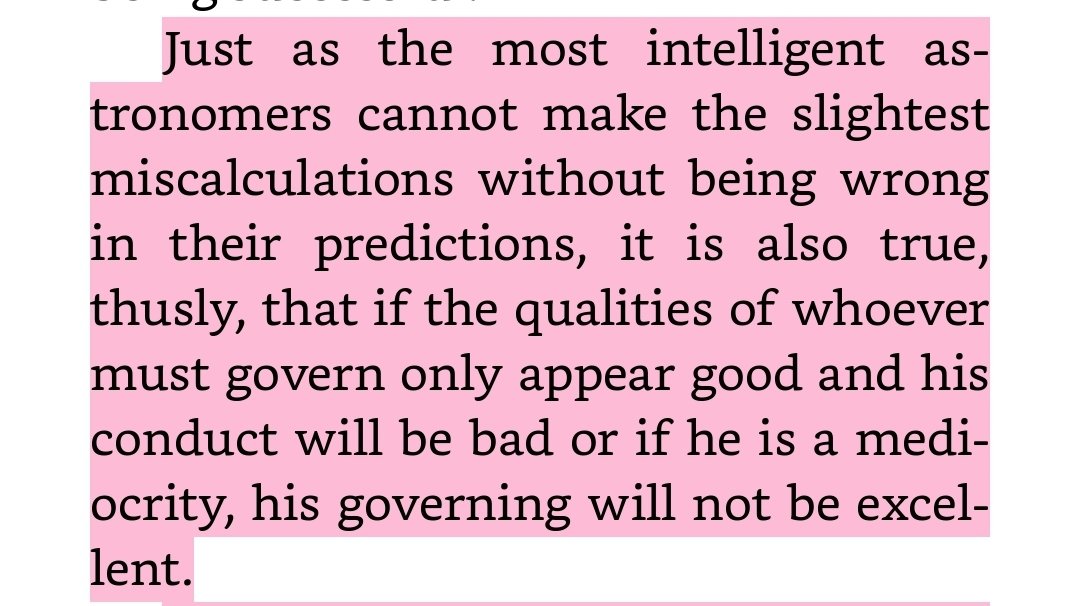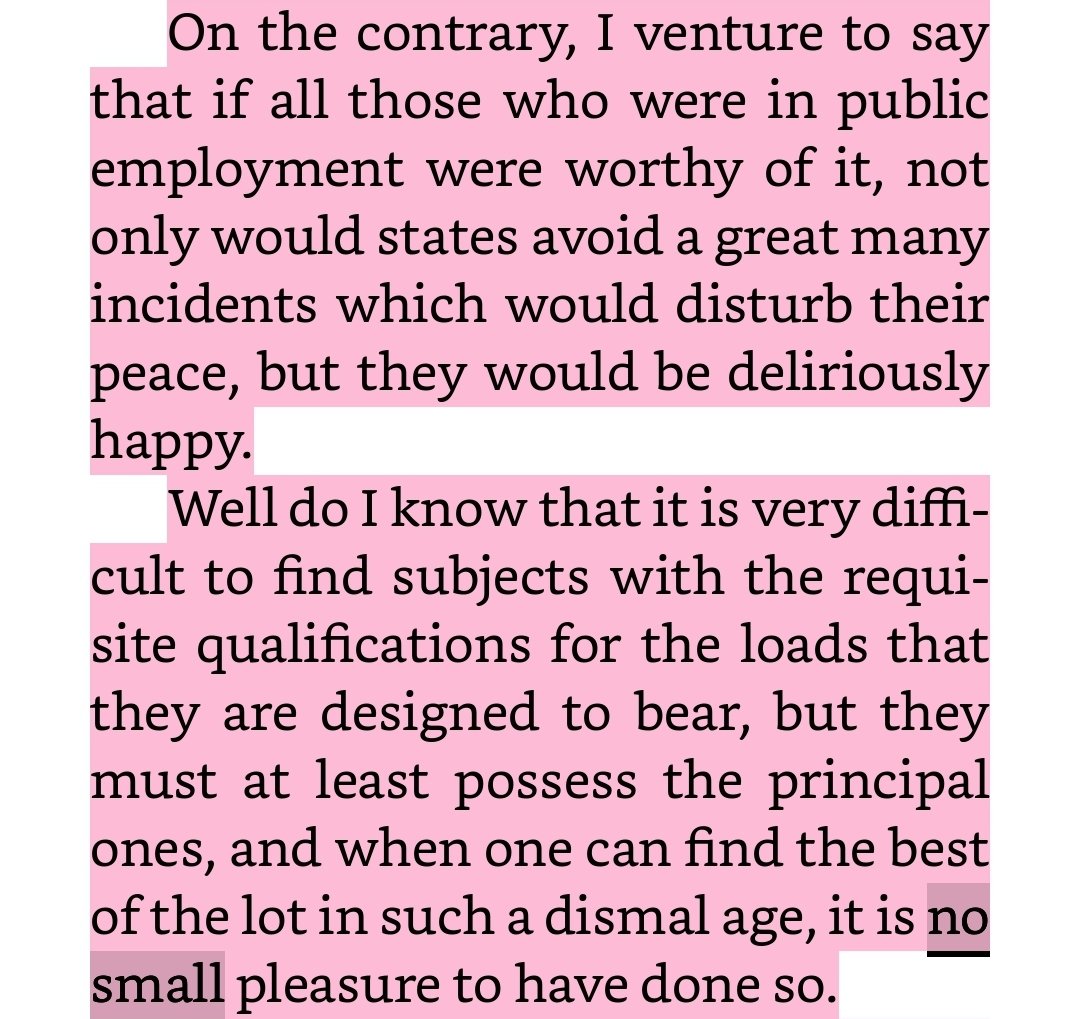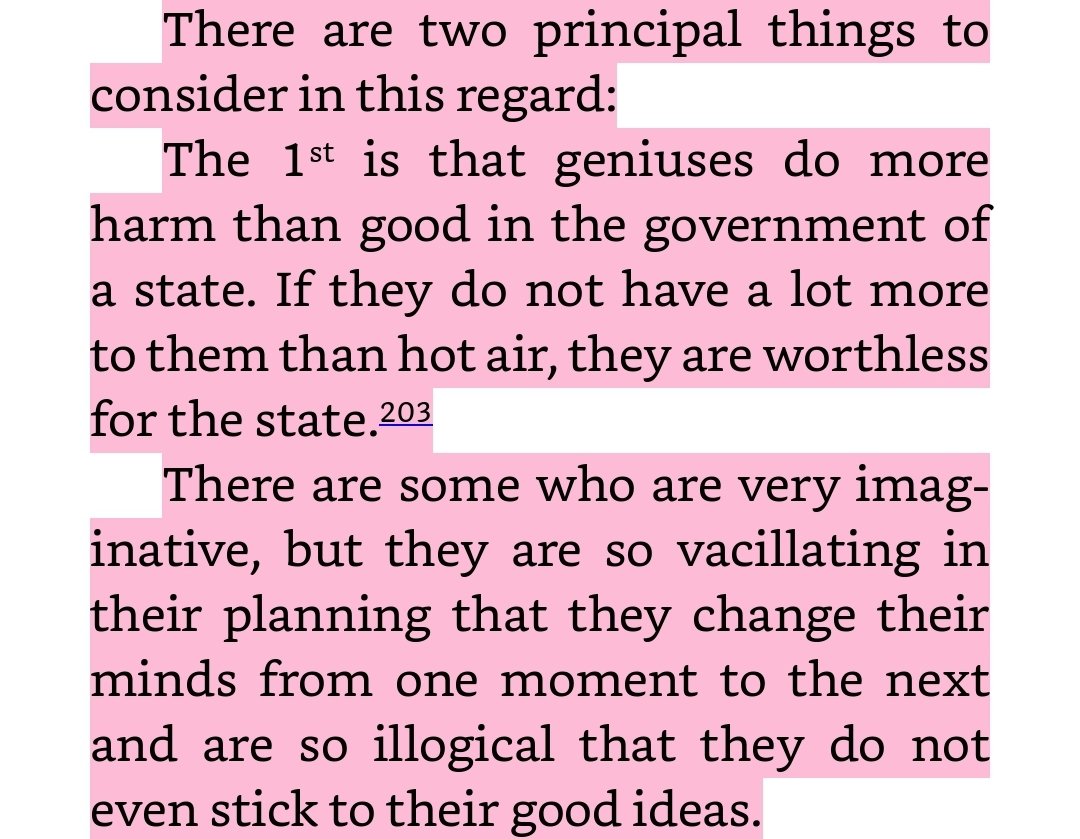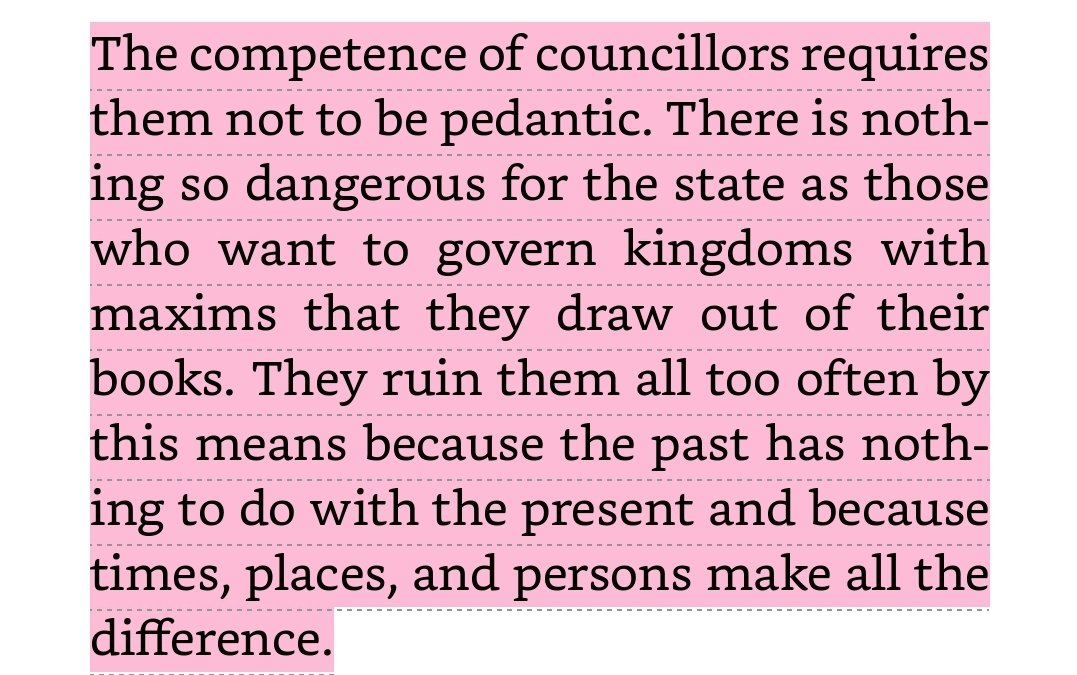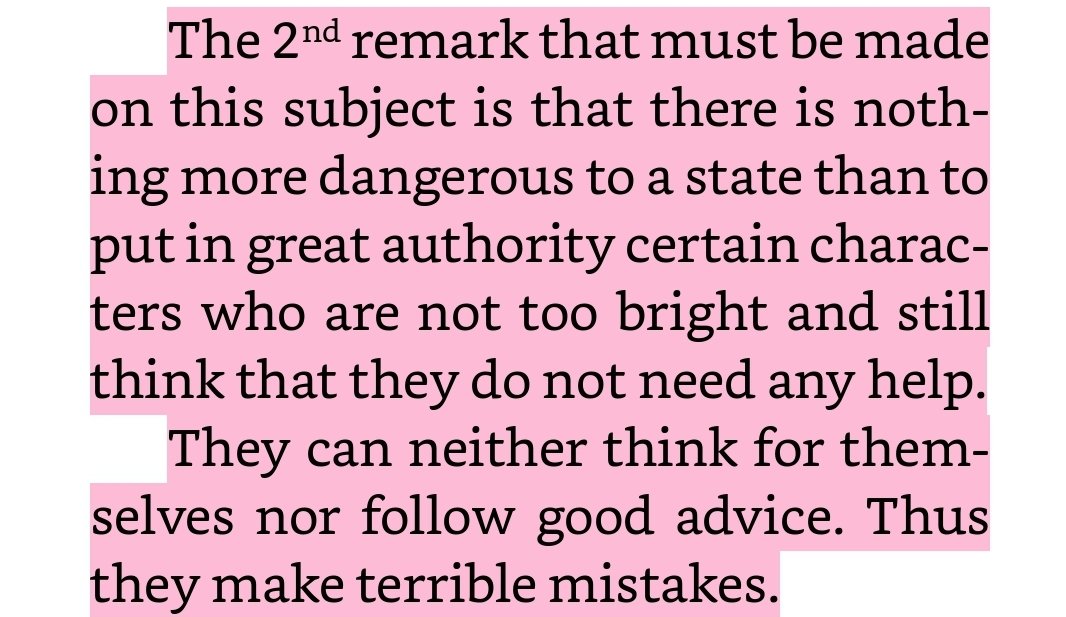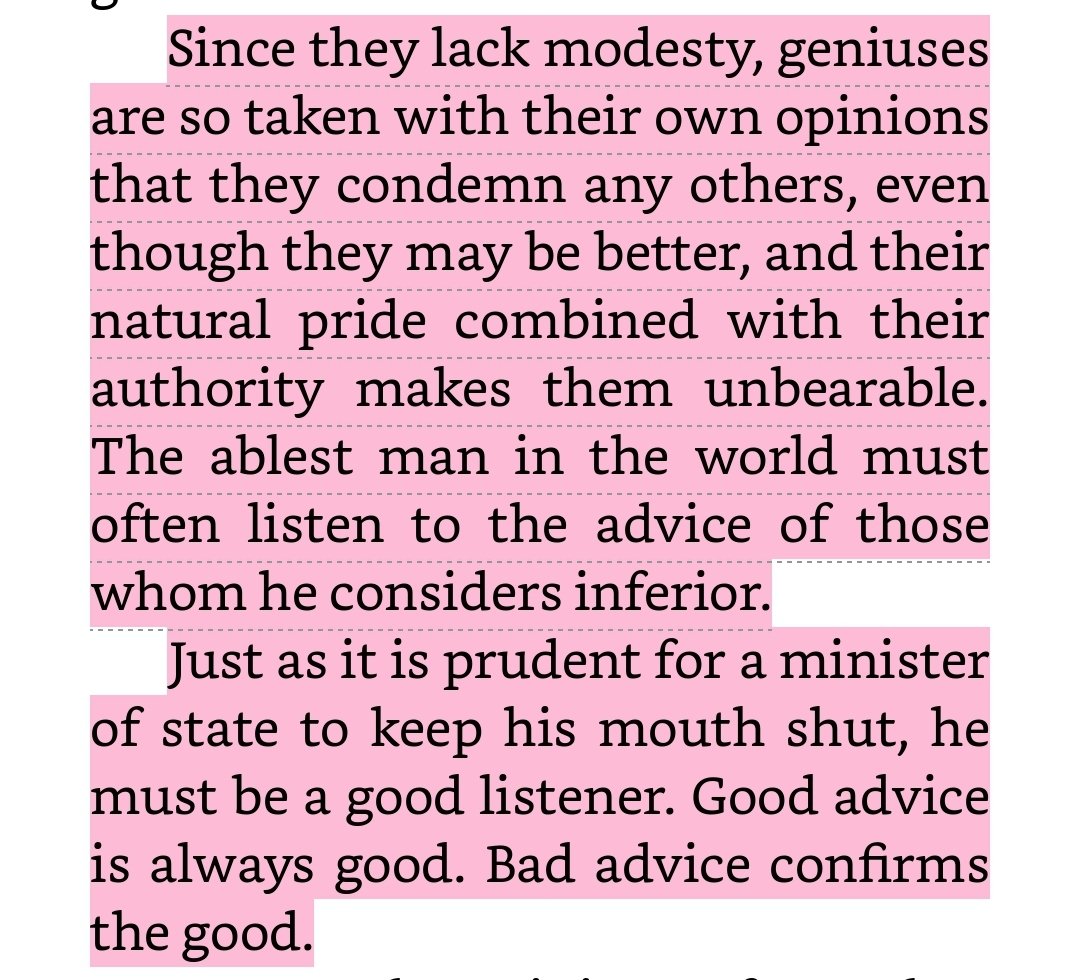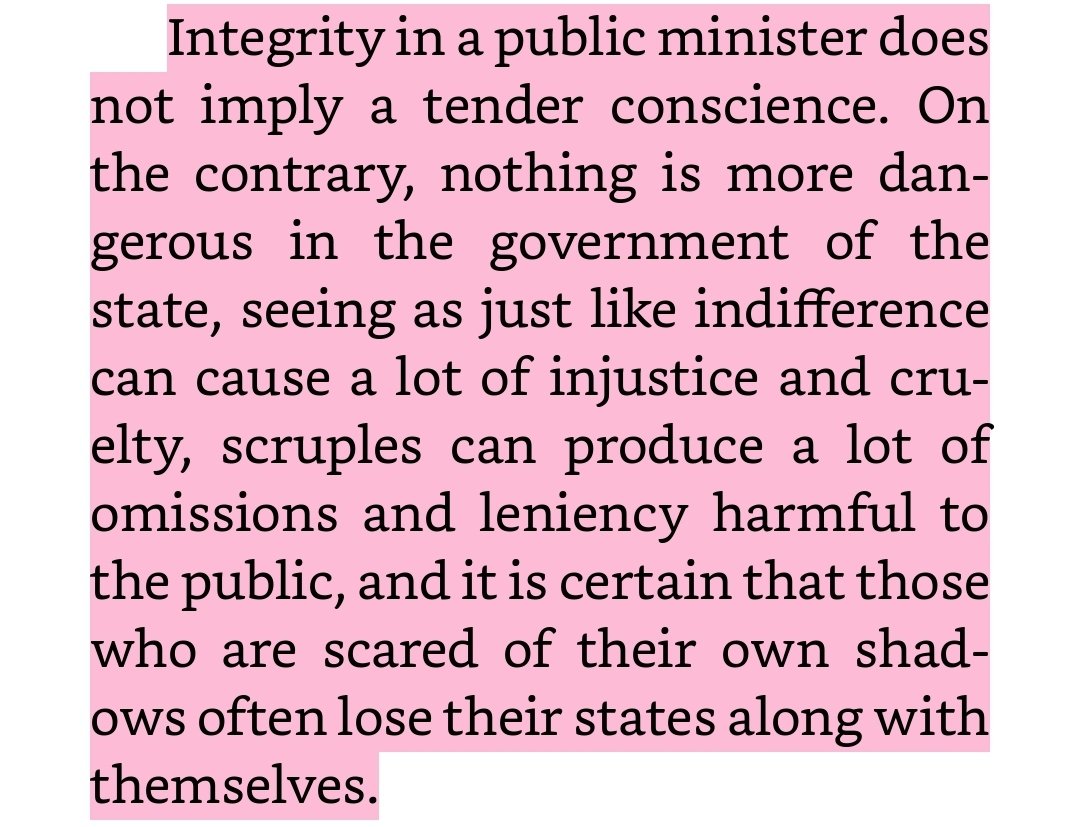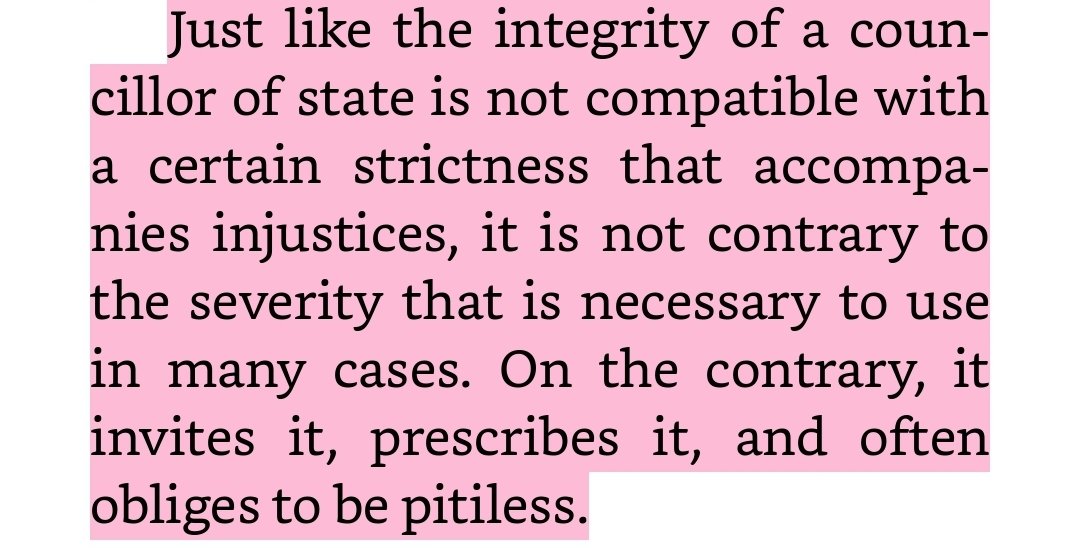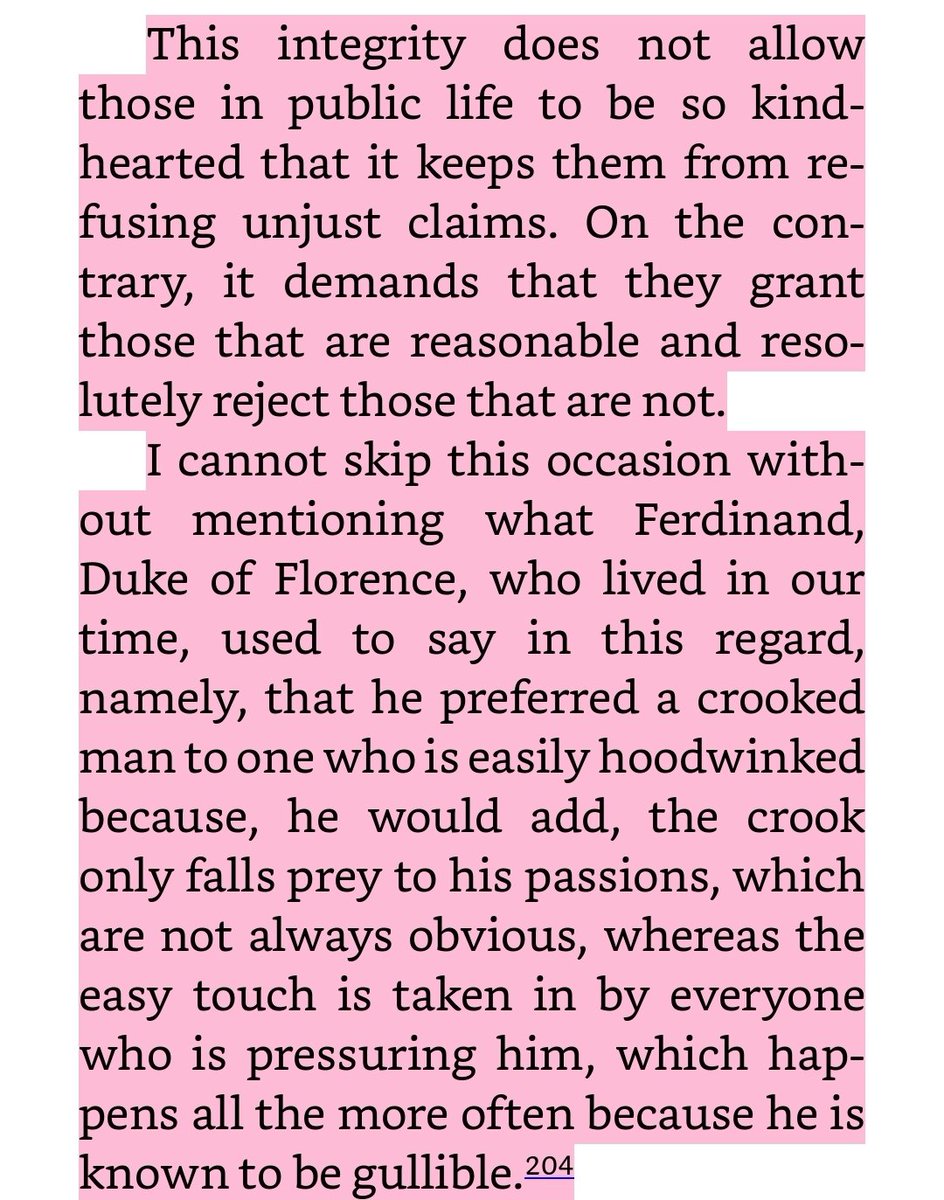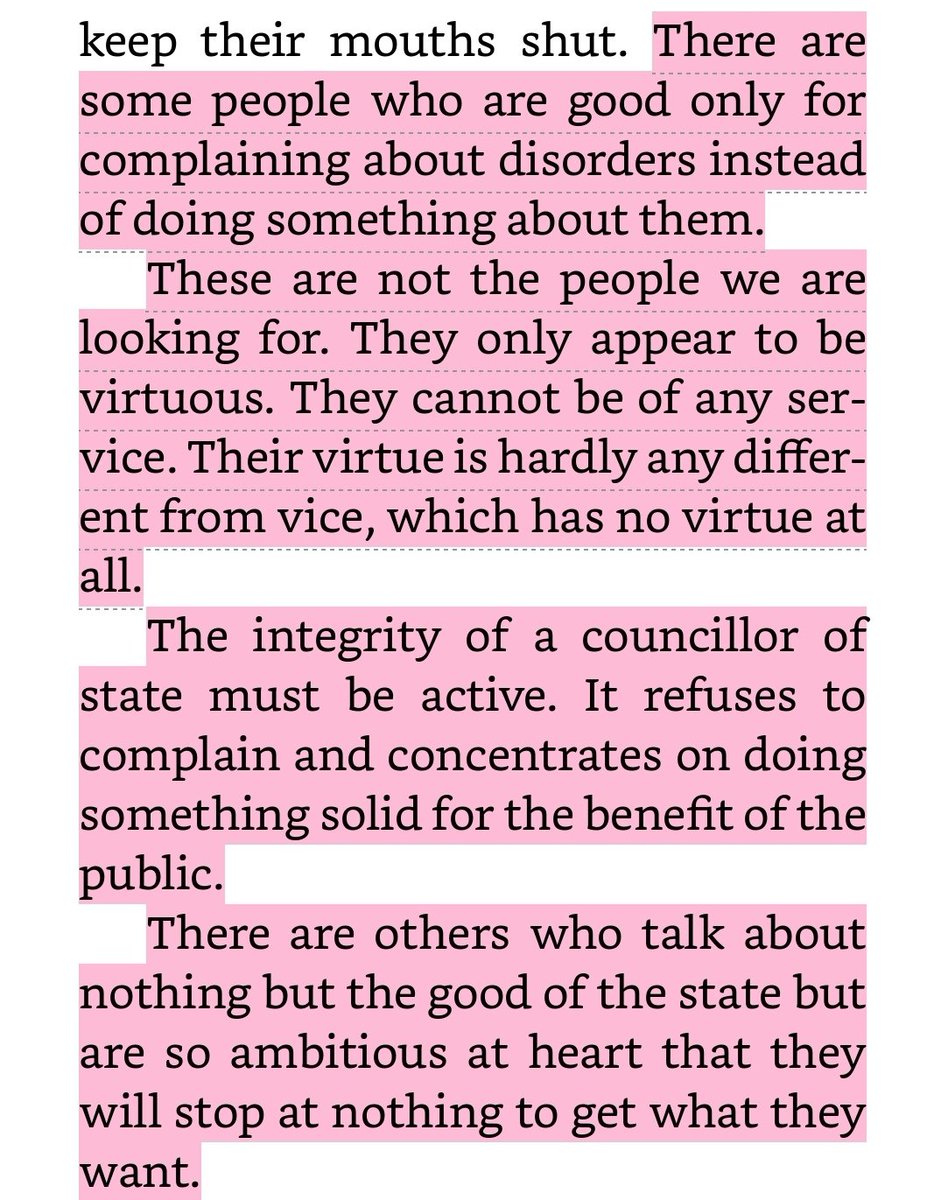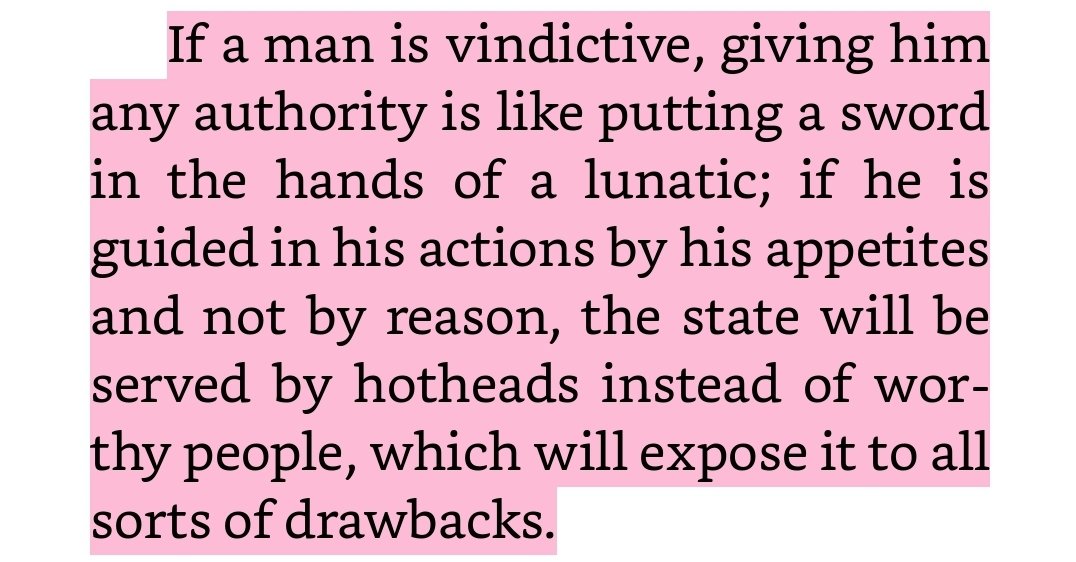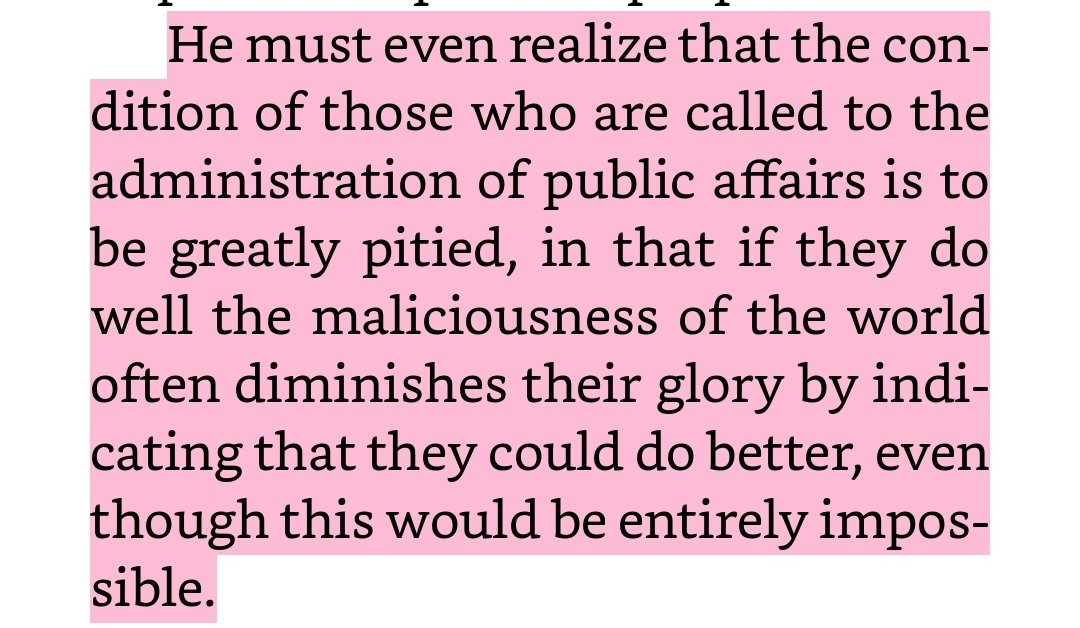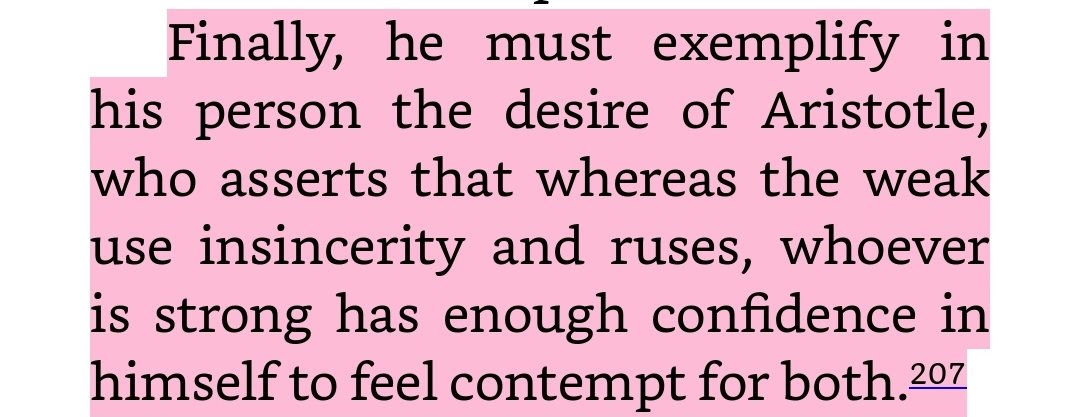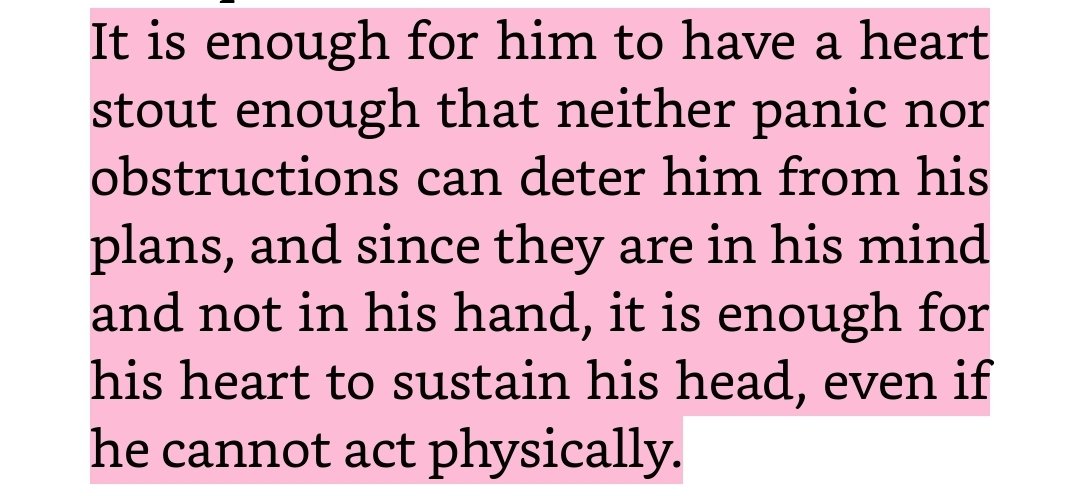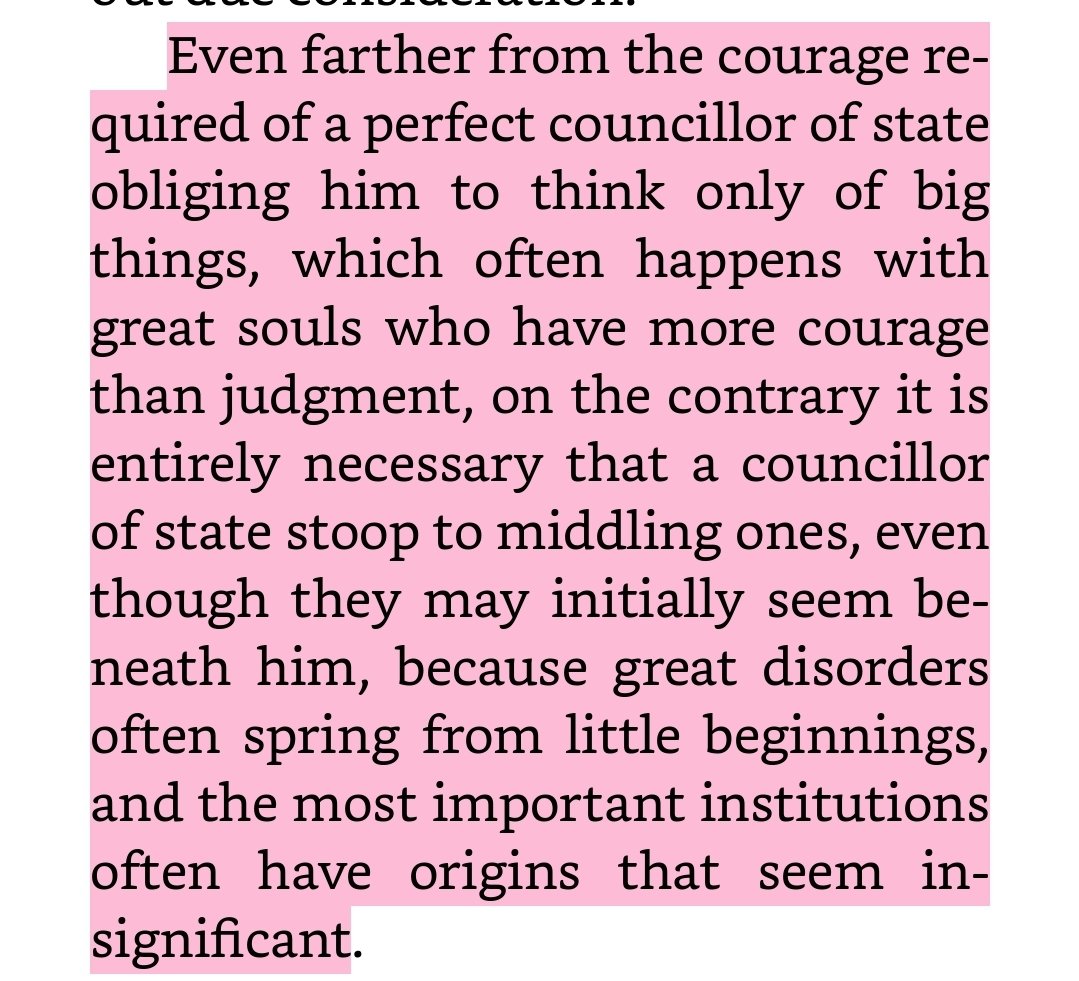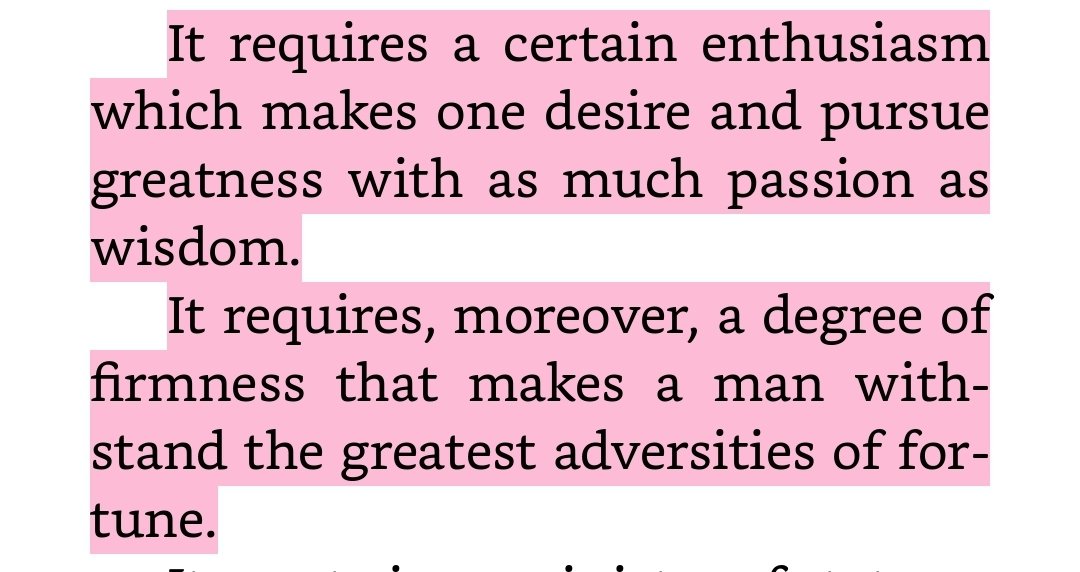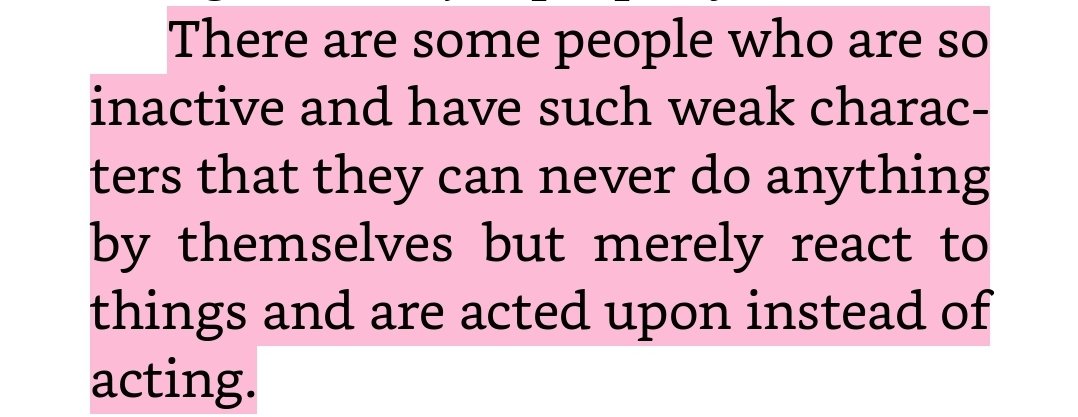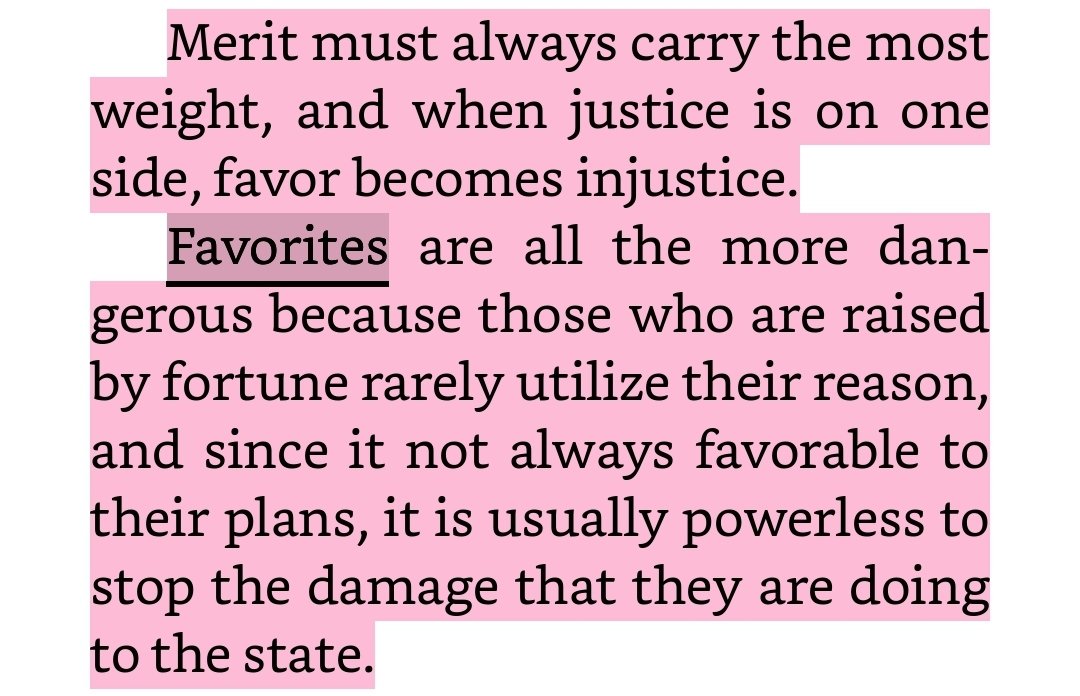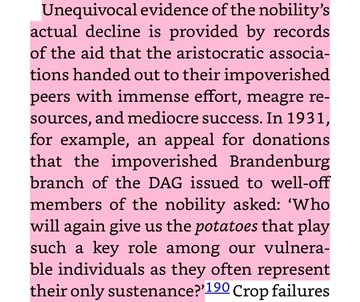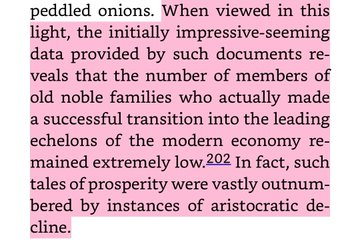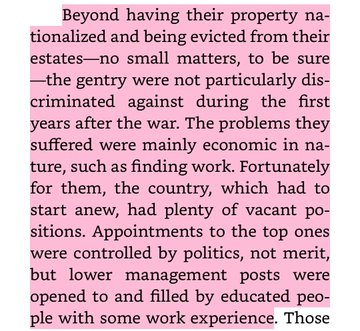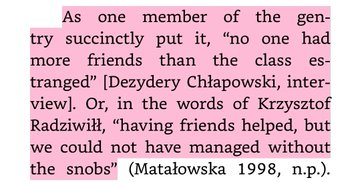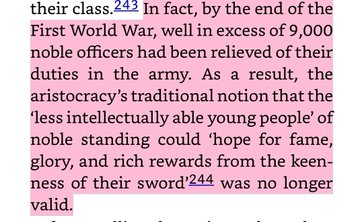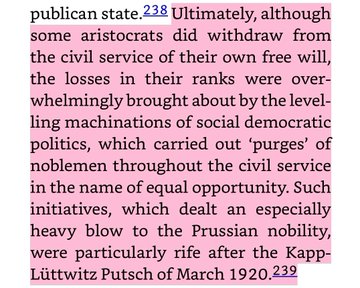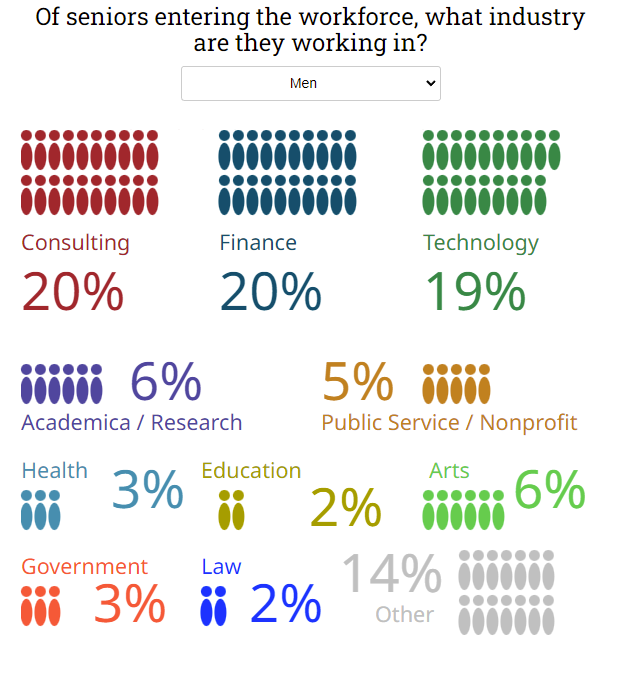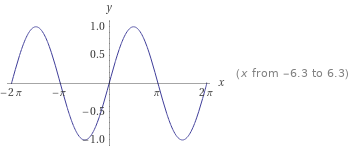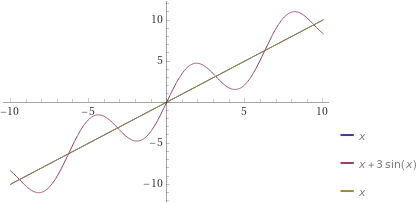95% of Americans or more have no idea how their country even runs or what the ruling class looks like. Most of them don’t even have a conception of a ruling class beyond this farcical Ralph Lauren model idea invented to sell overpriced sweaters.
It’s time for you to learn.
America is ruled by what I will call the Tripartite Elite:
Non-Orthodox Jews of Sephardic or German Old Families
Neo-Puritan Norman Americans, which are parodied as the “WASPs” of pop culture
East Asians, especially KMT-Americans
Jews are senior partners to Anglos and Asians. From the beginning, Jews were never excluded from power. This was a lie retroactively written into history to justify a victory of the oppressed narrative and the post-60s Civil Rights regime, along with the Second Founding idea of the Civil War. The original power structure of the North had the Puritan First Families, a mixture of Mayflower elites and highly successful merchant families plying the China trade (we will return to this later) with support from banking houses financing the sea trade. In this, the merchants were the wealthiest, and the bankers helped place the financing. August Belmont, a Rothschild banker, was Commodore Perry’s son-in-law. The most prominent finance house eventually became known as the House of Morgan. Rothschild was the European connection, while Morgan led his domestic finance syndicate, subdividing his fundraises with firms like Goldman Sachs, Seligman, and other Jewish firms. While Morgan took the lion’s share, the Jewish firms were never cut out. In the South, you had the Cavaliers and their finance Jews, who ran the slave trade procuring labor for Cavalier plantations. The chief bankers of the South were the Lehman Brothers, who plied commodities, mostly cotton. The first American Power Structure was therefore:
North, with Puritans leading and Jews as junior partner
South, with Cavaliers leading and Jews as junior partner
And both ruling classes were of heavily Norman descent, which can be seen in DNA tests to this very day. What happened next is well-known to everyone. The Puritans went to war with the Cavaliers and crushed them by importing countless Ellis Islanders to fill their armies. Cavalier power defeated, they transformed into the “WASPs”. This is the era of greatest Jewish butthurt, but Jews were never strongly discriminated against. What prevailed was not oppression but segregation.
This is the time of the Jewish club vs the WASP club. You would have the Century or Harmonie Club as Jewish clubs, Union WASP etc. The same prevailed in the white shoe world. Cravath was the WASP firm, Sullivan and Cromwell was the Jewish firm. The House of Morgan was WASP, Goldman Sachs and Lehman Brothers were Jewish. Separate, junior, but not oppressed, not compared to the common whites. Even then, the separation was imperfect. The Jewish Lazaruses were founding members of the WASP Union Club. Some Jews were on the WASP society lists and vice versa. Think 90/10 splits. Some firms, like Cravath, were totally pure. But most weren’t. The next shift came with the age of high finance coming into fruition. As business grew, the old Boston Brahmin tradition of sea merchant wealth grew obsolete. Industrial wealth was controlled by combination trusts, which were run by financiers. In 1912, Congress formed the Pujo Committee to investigate the finance power. They found virtually every large corporation in America was controlled by two syndicates: The House of Morgan, which was still subcontracting business to Jews, and the National City Bank of Rockefeller. Today, we know these firms as JPMorgan, Morgan Stanley, Goldman Sachs, and Citibank.
And in 1912, they controlled the world. This was the beginning of the struggle between WASP and Jewish power. The rise of finance meant that Jews were no longer subordinate to the First Families of Boston at all, and Boston faded as a center of Yankee power. New York was ascendant. Wall Street ruled. What the Jews pushed for was desegregation. And with mixed marriages becoming increasingly the norm, it became hard to say no. The struggle was largely over by the time WWII was rolling around. The last holdout, Cravath, hired a Jew in 1958. In 1960, the war was already over. Total Jewish victory. Complete desegregation of elite institutions. One united Anglo-Judaic race. And Jews as senior partners in the power structure of America.
But there was one more addition to come with WWII. Yes. 1960. You heard me. Almost no one alive today *ever* saw the era of pure WASP power. If they did, they were children at the time.
The Mad Men of Madison Avenue invented the idea to sell fucking sweaters, and they were buoyed by Hollywood (perpetually butthurt). Hollywood was the den of Ostjuden who were soundly rejected by the Eastern “WASP” Establishment, and they gladly latched onto any attempt to attack their betters (who were also Jewish). So yeah. Ralph Lauren.
There never was the Blond Beast of legend.
America’s first ties to China started with the China trade. John Forbes, of the Forbes family, was taken in as an adoptive son of the Qing Merchant Prince Howqua, a billionaire, who gave him a large gift of silver bullion after his apprenticeship. They intensified as the Scramble for China began. Dowager Empress Cixi invited Americans in to help modernize the country, to protect against hostile European powers. Eventually, a delegation of Chinese aristocrats was sent to American elite colleges. As Japan rose as a power, it threatened to take over all of East Asia. The Sinophile faction in America prevailed and blockaded and embargoed Japan. This made war inevitable.
Japan struck first, but they only awoke a sleeping giant. America won. But the effects of the war were numerous. At the same time America was fighting Japan, China had been fighting its own civil war. Qing had collapsed decades before, replaced by feuding warlord cliques. These eventually formed up into two factions: CCP and KMT. The CCP won and the KMT began the Great Retreat to Taiwan. At the same time, MacArthur was setting up a new government in Japan, which necessitated the creation of a whole new power structure as occupational authority.
This was the beginning of the Pentagon Empire: REDGOV. The KMT didn’t just retreat to Taiwan. It also began an occupation of Southeast Asia. There, it began growing poppies as a form of raising money. This drug money was then laundered through to Taiwan back to the Pentagon via the DIA. In Frank Lucas’s autobiography, Original Gangster, he talks about pioneering the heroin trade to the inner city. He went to Southeast Asia to source the materials. You know how they were flown back to America? Military planes.
There’s your black budget. Why the fuck did it even matter if Southeast Asia domino effect fell to Communist influence? Because that was *already* an outpost of Pentagon power via the KMT, which was rapidly merging with the Occupational Authority into one power faction.
So we went to war in Vietnam.
Silicon Valley was born as a product of Pentagon power. DARPA money funded the creation of Google. Before semiconductors, it was the base of black tech research into early computers. If the power of the Anglo-Jews was finance and law, the power of the Pentagon was and is tech. When semiconductor manufacturing moved from the US to Taiwan, Taiwan displaced Japan as the crown jewel of the Pentagon’s Empire. Other possessions included the Middle East and its oil, while the State Department came to rule over Europe. Chinese-Americans are almost 10x overrepresented in military-industrial complex positions. Do you know what the number 1 foreign influence listed in security clearances is? Not Israel. China. Number 2?
Taiwan. When you buy overpriced hammers from the contractors, Fu Manchu gets his cut.
How could China steal all of our technology, even military technology, so easily?
The call was coming from inside the house. The story of the rise of the Pentagon Empire, roughly, can be seen in James Clavell’s Asian Saga, with the exception of Shogun. The Noble House which stars in it is a pastiche of the House of Forbes and Jardine Matheson. Forbes gets his silver from Howqua in Tai-Pan, Japan is opened to the world in Gai-Jin (Commodore Perry!), the US is drawn into WWII in King Rat, Noble House is the Hong Kong crisis with a shadow war between the KMT, CCP, and USSR, and Whirlwind is the fall of Iran. The fall of Iran fundamentally reshaped the fate of Western oil companies and their operations and led to the creation of the modern Middle East imperial system. Here is your Petrodollar empire. This is the shape of your ruling class. At the top are Jews, who hold total dominion. The neo-Puritan WASPs hold important positions in white shoe finance and law firms. And the Chinese control the MIC and the flow of capital through the Asian empire. What does this look like in practice? “White Americans are rich.” No. No, they’re not. White Privilege is a myth.
The common White, the White Evangelical, has a median net worth of about $25,000. Episcopalian Americans have a median net worth of about HALF A MILLION. So do Chinese-Americans.
And reform Jews?
One million dollars. Median.
20x and 40x the common White man respectively. Why bring any of this up? First of all, I value the truth. But second of all, both Chinese-Americans and Episcopalians have been eclipsed. As of CURRENT YEAR, who is the second-richest group in America?
Hindu Americans. And they hire their castemates. This is the H1B threat.
The Jews of the Netherlands were Sephardic and their presence was infinitely greater in the North because they mainly found their way to New York and joined together with the Old Dutch merchant families and New York colonial elite to form the first New York Society.
The original, far lower intensity intra-Jewish conflict in the US was the Sephardim being annoyed at German Jewish peddlers in the early 19th century. The thing was that basically everyone was a “peddler” back then. The Roosevelts sold sugar. Plantations being deprecated is a very backwards logic way of putting it – it’s more that industrial finance capitalism was being *invented*, in the North, by the joint ventures of Morgan and the Jewish banking syndicate on one side and Rockefeller on the other side.
It’s important to remember that, in those days, Anglo on Jew violence and bigotry was about as common as Anglo on Asian hate crimes are today. You have to contextualize Jewish neuroses given that knowledge.
We truly live in a racist country.
The WASP set was entirely cooperative with them, they just wanted them to not harbor literal communists! I’m about to share stats of how many elite lawyers in 1937 were (predominately German) Jewish. At this point, literal thousands of Russian Jews were pouring into law.
One of the first “Anti-Jewish” “WASP Quota” laws was to bar communists from the bar. This reduced the Russian Jewish proportion of test-takers by 20% – leaving them STILL at 60% of new lawyers in the 40s.
The Status of Jewish Lawyers in New York City, Jewish Social Studies (1939) Jews in the Legal Profession: A Case of Adjustment to Discrimination, Jewish Social Studies (Apr 1970)
The point is that the White Boogeyman is an acceptable scapegoat for whatever problems you’re actually facing. There was never a basis for these revenge fantasies. Ever. For instance, the hated WASP BigLaw firms which “strongly discriminated” against Jews were, on average, 25% Jewish in 1960.
oh no what a tragedy In 1937, $5000/yr put you in the top 1% of incomes. 22% of Jewish NYC lawyers and 32% of WASP lawyers made more than $5000. 104 Jews and 393 WASPs fell into the “Elite Law Partner” category of incomes exceeding 15k. 21% Jewish in 1937.
From my library, under chutzpah: some Jewish thought contemporary to Animal House.
WASPs are racist because WASP Law Firms aren’t literally 60% Jewish. All I can say in defense of this is that my own co-ethnics made a similar argument in the 1992 LA Times wrt DoD.
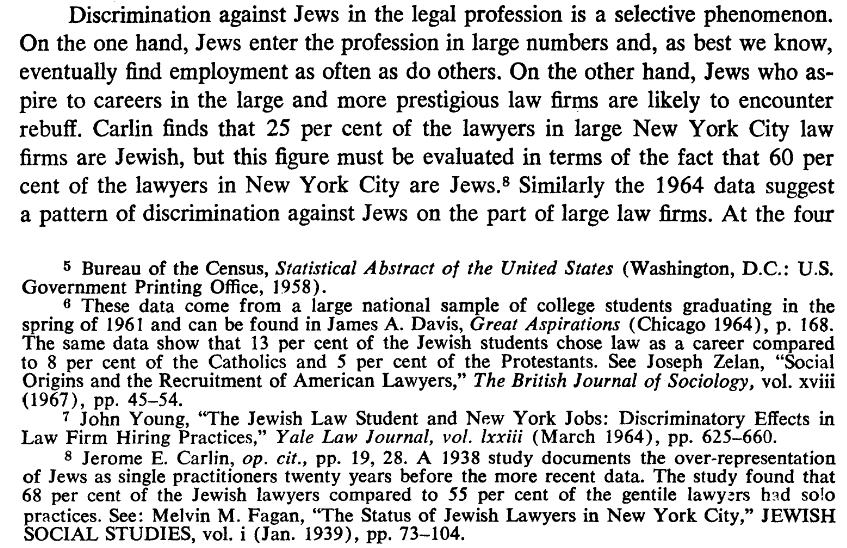
Whenever I talk about the reality of WASP racism against Jews (none), I get pushback from randos insisting how bad and real it was! So here you go, you apes. You want vintage racism? Vintage racism is mocking the Chinese kid at St. Grottlesex in 1947. But having a Chinese kid.

EDITOR’S NOTE: I do get sidetracked off the original point about Jews and I will probably revisit this concept in the future, especially in relation to the coup of the Ostjuden and the creation of the Hollywood-Industrial Complex, the CIA and Laurel Canyon, and the snubbings of the country clubs.
It’s time to talk about the heterogeneity of American Jewry. But to do that, we have to dive into other concepts, which are murkier to me. The previous thread had the benefit of family lore. Luckily, we still have a guide: more family lore.
It comes from a man named Yarvin.
You, young people, may know him as Curtis Yarvin, weird old guy at Dimes Square parties trying to score art hoe pussy with a mysteriously large fortune. But once upon a time, he went by the name of Mencius Moldbug.
If Gray Mirror is kiddy addies, UR is straight crystal meth. But I promised to talk about Jews. There are several kinds of Jews. There are Sephardic Jews. Sephardic Jews generally arrived in America in the Colonial Era. There are Mizrahi Jews, who are not relevant to this thread. And there are Ashkenazi Jews. But Ashkenazi hides a crucial difference. The Jews of the previous thread were the German Jews, who also had Jewish emancipation in Germany, and generally came in the early to middle 19th century. These were the Jews of the finance power.
However, there’s another group that is also classified as Ashkenazi. Jews from the Pale of Settlement: The Ostjuden. Generally considered uncivilized, they were not included into respectable Eastern society. Well, screw this! Let’s go West and build Hollywood. So they did. With the advent of the finance trusts came the era of monopoly capitalism. Monopoly capitalism is a necessity when products are so irreducibly complex they can only be produced by state-backed monopoly or oligopoly corporations: like a smartphone. There’s a problem with that, however. Absent constant competition, how do you know what customer demand is and how do you do proper price discovery? You may control the supply totally, but now you are risking it all every product release. How can you survive this uncertainty? The answer is obvious: Control both sides of the equation. Manufacture demand for your manufactured supply. Learn to manipulate the masses. This is the media-industrial complex, which is an agglomeration of the Mad Men and Hollywood working in tandem to control public opinion. But if you’re controlling public opinion for one thing, why not another? Why just control public opinion to sell product and consoom next product?
Why not rule their minds?
Why not rule their souls? Wokeness is a religion, but it’s not a new religion. It is the natural conclusion of the Civil Rights regime, which is an outgrowth of an academic morality. It is the Creature from the University Lagoon.
Combine the media-industrial complex and the universities, you have power. Ideas come from the universities and are promulgated onto the public using movies, TV, and advertisements to tell you what is desirable or undesirable, and the whole process is totally decentralized, because it is driven by bioscum signaling loyalty to the public morality. What do we call this? Many names. Sometimes Yarvin calls it BLUGOV, whereas the military power we examined before was the REDGOV.
The US has two governments: One is the Pentagon, and the other is the State Department.
https://www.unqualified-reservations.org/2007/06/mystery-of-gray-government/
The BLU empire is Europe and the RED empire is the Asia-Pacific Region plus the Middle East. Notice that Europe is always more liberal than the US and Asia is always more conservative than the US, and the US is somewhere in between.
Weird, right? The RED and BLU empires both extract wealth from their imperial peripheries and distribute it to their patronage networks. If you’ve been on Dissident Twitter enough, the BLU patronage network is obvious. 26% of Americans work for Big Government distributing welfare to blacks. But what is the RED patronage network? We need gibs for White People, cry dissidents! Well, we had gibs for White people, of a sort. First of all, you can smash the Big Government and return some money back to White net tax payers.
But what is REDGOV? The MIC. Who works for the MIC? At the top, Chinese and certain WASP families, especially former Cavaliers. At the bottom, White Heartlanders. What do White Heartlanders get? Free rent, free college, free healthcare, a pension, job training, and a ticket into subcontracting. Subcontracting and resource extraction is where the money is. The RED government owns or goes to war for mineral and resource rights around the world, then it subcontracts the business back to Fu Manchu and his Big Defense. But in turn, those contracts get split up. A veteran gets a clearance, leaves the military, and starts a small business. That small business can apply to Federal Biz Ops, an arcane system only the initiated (former RED men) understand. These contracts and subcontracts are worth hundreds of thousands, if not millions. The ruling classes of the two governments are therefore two slices of the ruling ethnicities of the united American Empire, which is like two Empires joined at the hip. Moldbug calls the rulers of the REDGOV Optimates and the BLUGOV Brahmin.
https://www.unqualified-reservations.org/2007/05/bdh-ov-conflict_07/
Which one is the High-Low Alliance against the Middle? Obviously the BLU, right? After all, they are led by Brahmin to take tax dollars and give it to welfare clients who really are utter scum. And the RED is the elitist educated… suburbs? Except that doesn’t win elections. Hm. Well, we know how Trump won! He was a man of the people who rallied the working class to overthrow the Swamp! And we know how Bush won! He was a folksy Texas cowboy (descended from a Puritan Continental Army Captain) you could have a beer with! And we know how Reagan won! He was a straight shooter the average Joe could talk to as opposed to those overeducated elites. And we know how Nixon won! Remember, the press is the enemy! Stand up for Joe Dirt against them!
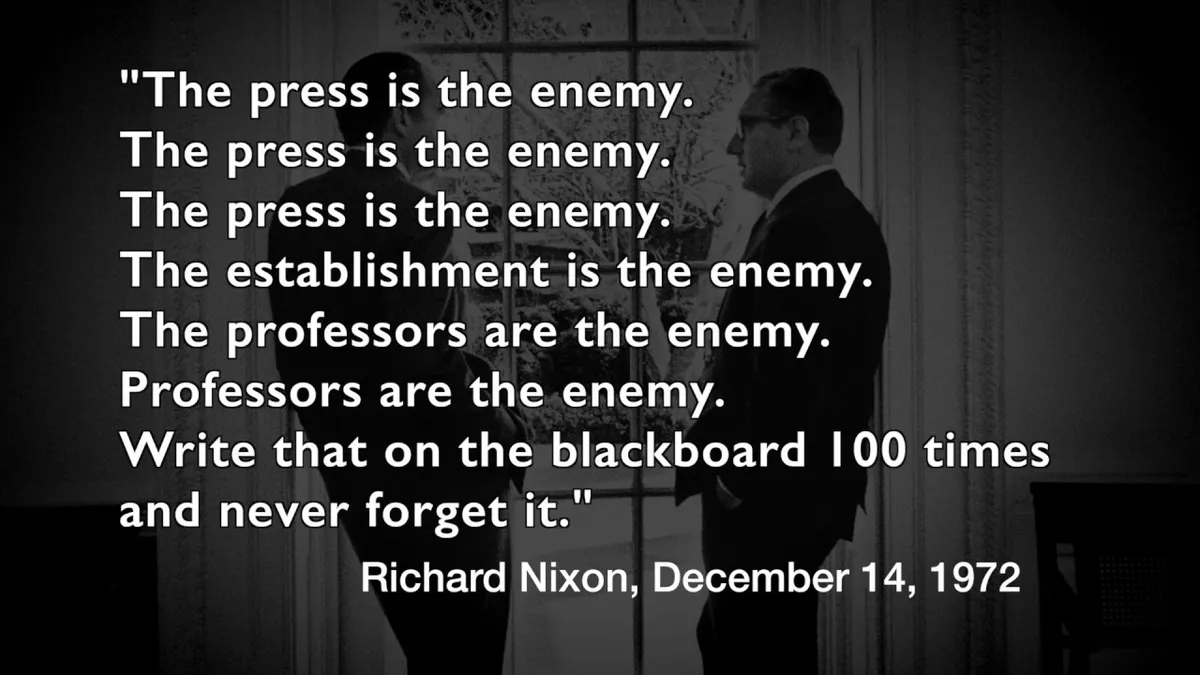
They’re both High-Low alliances. Whoever can successfully mobilize their High and Low simultaneously wins office. Then they loot the public purse to secure funds for their patronage network. The Iraq War was patronage, at the cost of a few thousand CHUD lives. Sorry. Moldbug also calls the governments the Inner Party (BLU) and the Outer Party (RED). In the end, the Washington Generals of REDGOV always job. And why? Because BLU writes history and narrative and morality, and it says you are the bad guys and you lose.
https://www.unqualified-reservations.org/2011/01/your-goverment-in-pictures-1954/

Have you noticed the hundreds of infographs floating around /pol/ claiming the Rothschilds run every Central Bank in the world? Curiously, this never shows up on the P&L statements of the German Jewish banks, either Goldman or the original Rothschild boutique. And there are, in the last decade alone, several books outlining the power and structure of the House of Morgan and the Morgan finance trust system and their finance power. You know who rarely gets named? Rockefeller. Come on. Think about. How much is the name Rockefeller mentioned on /pol/ compared to others?
You know the answer. I told you in 1912, two finance syndicates ruled the world. But I never told you who won, did I?

I think this answers that question. Who’s at the top of our previously linked honest government chart? The foundations. The oldest power foundation? Rockefeller. The foundations run the university, and through public morality, control media and leash RED.
Of course, RED is usually happy to lose. Made Men in the BLU empire get… tenure. At best. Most of them get government jobs that pay 40k-60k, and because most government jobs are NGO subcontracts, can be fired at-will. And to earn them, you need to put in ten years of activism. Made Men in the RED empire are all millionaires. They get to grill, enjoy their WASP wives, and think about the Good Old Days.
Losing is a profitable business. Especially when winning means damnatio memoriae. Just shut up and grill. One of the oldest pieces of Dissident literature, outlining what we might call “Deep Politics” is allegedly a letter from a Rothschild to his heir, outlining the use of finance, psywar, and force to control a vast empire.
In Intelligence, we call this a “limited hangout”. Another piece of Dissident literature? Conveniently, a pamphlet on how the Deep State and finance power works leaked, oops, by being lost on a printer in a defense contractor.
You’ll notice a pattern. Of course, at the end of the day, it’s all one ruling class. As Moldbug said, 16 years ago, open war within the ruling class would be totally abhorrent. It would split the country in two. It would kill millions. Reform is necessary. But not revolution.
Does reform ever come? Now onto the structure of the two GOVs. The structure of the BLUGOV is Bioleninism. It is a decentralized form of governance by which bioscum are uplifted into positions beyond their capabilities in order to ensure their loyalty, coordinated by morality.
spandrell.com/2017/11/14/bio…Moldbug would call this Anglo Communism, and it is the aftermath of the Frankfurt School, Gramsci, and Cultural Marxism. Gramsci’s dream was a world where everyone worked for the government manufacturing cultural power. That sounds… suspiciously accurate. None of that sounds Anglo to me, but Moldbug would pin the implementation on the Fabians, which was unfortunately Anglo to its core. Who is responsible? The designer of the gun, or the man who pulls the trigger?
Well, why’d you call it the Cathedral, not the Synagogue, Moldbug? So what’s the structural principle of REDGOV? They call it “Mission Command”. I love Mission Command. The REDGOV is a series of pyramids stacked fractally into larger pyramids. Each pyramid is led by an authoritarian leader, but each pyramid is a cell. The cells are independent but hierarchically organized. The top brass sets a goal, then each organization splits it into smaller goals which individual units have autonomy to execute. Cells do not know what’s going on tactically, but it forms into one strategic vision. Does this sound familiar? It may sound like a government which exists in the real world. China. China has regional and local Communist parties which are all autonomously trying to complete their Big Plan and working to subcontract business out to do so. If the BLUGOV is Anglo Communism, then the REDGOV is Leninist. The REDGOV is Soviet Communism.
You have two governments and they’re both Communist. MAGA Communism is just an administrative reform.
Inside the US are two wolves… Communism is a response to the needs of monopoly capitalism. Because monopolies need state backing, the state must enter and control the economy somehow. You can either do this in a centralized or decentralized way. Anglo or Soviet communism. The Pentagon is a planned economy. So where does that leave us?
Communism is collapsing. The US is on its last legs. So is China.
The wheel of time turns, and another great cycle comes to a close. As the wheel of time turns, great families are made or ground to dust. Ancient dynasties rise, fall, and rise again. Once, the Borgias were humble barons (of partial Jewish ancestry, like almost all Spanish noble families). They maneuvered to control the Papacy. They fell. Then a long, long time later, a Borgia rose again.
He was elected President of Ecuador in 1988. The Sun family ruled one of the Three Kingdoms, only to meet defeat. One of them escaped to found a village. Sima Yi slaughtered the whole Cao dynasty save a few survivors. Nearly two thousand years later, Sun Yat-Sen comes from that village. The Qings name a Cao to power. When Qing falls, in part, the Three Kingdoms conflict is relitigated. And who wins? Neither. But Zhu Rongji ends up as one of the premiers of the People’s Republic of China. And Zhu is of the Ming Dynasty.
Looks like the Han loyalists beat the Manchu traitors in the end! The conflict between BLU and RED may sound very familiar. BLU uses writing and public morality to rule, RED uses hard power.
BLU is priests and RED is warriors. Those that fight, those who pray, and those who labor. You, probably, are those who labor. But when the cycle grinds to its end, the sword is mightier than the pen.
Anon, do you believe you truly are of spiritual nobility? Deserving to rule? Then gird yourself for war and take the sword.
The ink of the Book of the Black Nobility is blood. If you’ve enjoyed this thread, why not take some of the original NRx canon with you?
Spandrell’s whole corpus is now available on Amazon for a modest price, and it is very practical as a tool to gain power, similar to the Dictator’s Handbook.
https://westmartian.square.site/product/bs-1/1?cp=true&sa=false&sbp=false&q=false&category_id=5
I think it’s time to talk about Boba Liberals and the Chinese Ordeal of Civility. But to explain that, and the long, strange history of Chinese-Americans, we have to talk about *why* the Hart-Cellar was passed. Let’s start at the beginning. America’s involvement in the Far East begins with one man: John Forbes, founder of the Forbes family. As a teen, he sails to China and is adopted as a son by Prince Howqua, master of the Qing trade monopolies and the wealthiest man in the world. This is fictionalized in Tai-Pan. The China trade makes the Forbes family very rich. It makes the Boston Brahmins very rich. It draws wider and wider circles into China. August Belmont, the Rothschild banker in America, was married to Commodore Perry’s daughter. Commodore Perry opens up Japan. America prospers in the East, creating a whole proto-WASP subculture: The Old China hands. These were merchants, diplomats, and missionaries who spent years and years living in China. The US also sent military and technical experts to modernize Qing. This is the prologue. This is where it all starts.
We can divide Chinese immigration into 3 waves.
1. The Gold Rush
2. “Hart-Celler”
3. IRCA
You can clearly see 3 waves, with the last boom starting recently. But the Hart-Celler wave starts… 20 years prior to Hart-Celler.
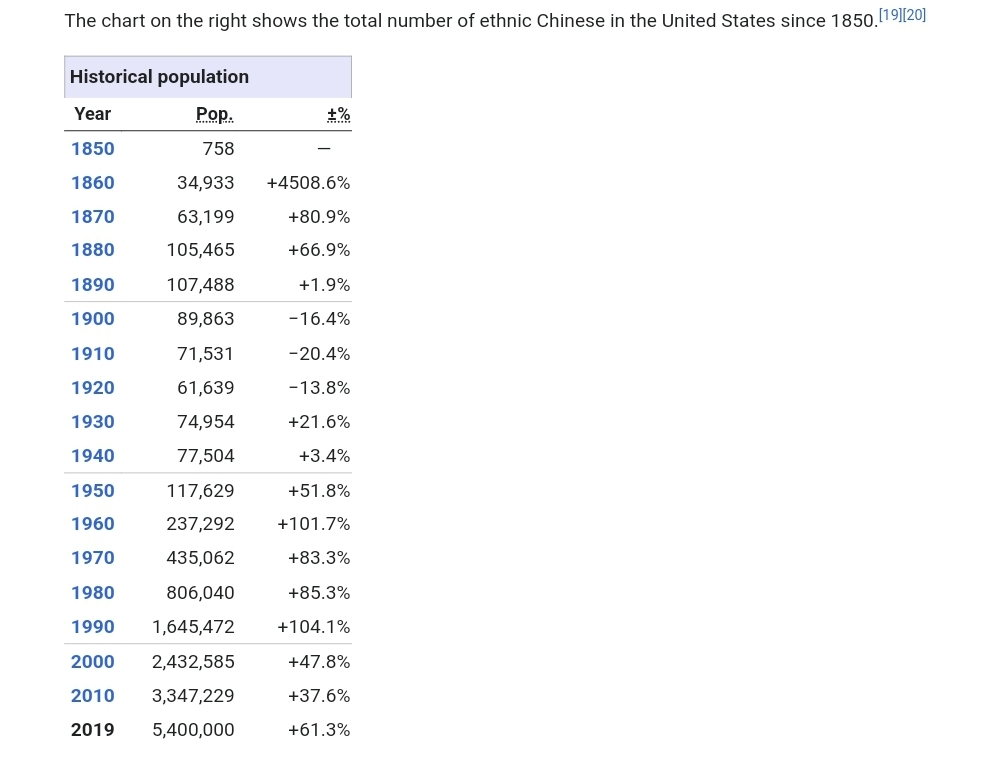
The Gold Rush Chinese and their descendants are small in number and largely insignificant today. But they have historical interest as part of the reason why America clamped down its borders in the first place.
The Crusade of John B Trevor. Growing up, I was taught in school that the Chinese Exclusion Act was one of the original sins of the Blond Beast WASP Establishment against DIEversity. I was astonished to learn how reasonable and measured the arguments were. To wit, perhaps these Ostjuden or Chinese might be capable of civilization or even a very fine one. But it would cease to be the Anglo-Nordic civilization the Founders bequeathed to their descendants and would become something new and alien. Perhaps you could call it Sino-Judaic. This did not last. In the late 1940s, the old WASPy Republican was stirring again after a long suppression by FDR. It wanted to pass policy. And what policies did it want to pass?
Simple.
UNLIMITED CHINESE IMMIGRATION You may ask why. There are a few reasons. First of all, the KMT and its arms were an integral part of the new Pentagon empire and its power structure.
Secondly, and relatedly, China was one of the key fronts of the Cold War. And this fact grew even more pressing in Republican minds with the fall of Chiang Kai-Shek and the Great Retreat. But lastly, many of these WASP elites came from Old China hand families. They grew among in the glittering palaces of the Great Qing. And they felt an affection for these distressed Chinese.
The Anglo easily accepts others into its ingroup. These main motivations can be seen in two main figures of the movement: Charles Kersten and Walter Judd. Kersten was a Cold Warrior and Judd was an Old China Hand.
At the same time, the German Jews felt very guilty about what had happened to the Ostjuden. A bargain was struck within the elite. The German Jews could take in their shtetlbilly cousins and the WASP elite would bring in the Chinese. It would all be funded with MIC money and run by spook front organizations. These two fronts were funded in THE SAME BILLS. Not for nothing do I say Jews and Chinese in America are racial allies and have been so since the beginning.
The schemes paid off. Starting in 1948, the USG used a mixture of congressional bills, executive actions, and CIA assisted illegal immigration to bring them in. Every year they would rotate between one of these types of actions to bring more immigrants. It worked. By 1953, the US had brought in almost ten thousand East Asians and more than thirty thousand “fellow Whites”.
But it was not enough. Luckily for them, Eisenhower was elected. The Southern Democrats were against all of this nonsense and a substantial force in the Democrats. But Eisenhower was a Republican and onboard with the plans of the GOP Establishment.
So in 1953, the US passed the Refugee Relief Act.
TWO HUNDRED THOUSAND NON-QUOTA IMMIGRANTS The floodgates, already leaky, had been busted right open. For the rest of the 1950s, the government would, by fiat, mint thousands upon thousands of new Hart-Celler Americans every year. Mission accomplished for the Northeast Establishment. But there is nothing so permanent as a temporary solution. By 1959, the government had been arbitrarily making new citizens for a whole decade. While effective, this was also faintly ridiculous and sooner or later, the public would notice. The CIA shut down the ARCI. It was time for a permanent solution. What was in the way? Captain Trevor’s brainchild: the Quota system, still technically the law of the land, standing firm to keep America Anglo-Nordic.
The Deep State spun into action. The NYTimes began running propaganda articles painting Chinese as the “Model Minority”. In fact, they were not a minority at all. They are your fellow Whites, White man. And to hammer the point, the US gave Chinese “Most Preferred” immigrant status, alongside Europeans. This worked. Isolation indices, a measure of residential segregation and redlining, fell from 52 to 18 for Chinese by 1970. After all, while your HOA may want to keep those dusky fellows out, why exclude your Fellow Whites? This changed public opinion for the ultimate triumph: formalizing the informal quota exceptions. Hart-Cellar.
Have you ever asked why such a “racist country” would pass a radical immigration bill like Hart-Celler? Because it was already elite consensus and the informal reality. The Hart-Celler act formalized the Chinese-and-Jewish exception to racial quotas. While most in our sphere think this began true universal immigration, this is not true.
You can see immigrants really balloon after the 1980s.
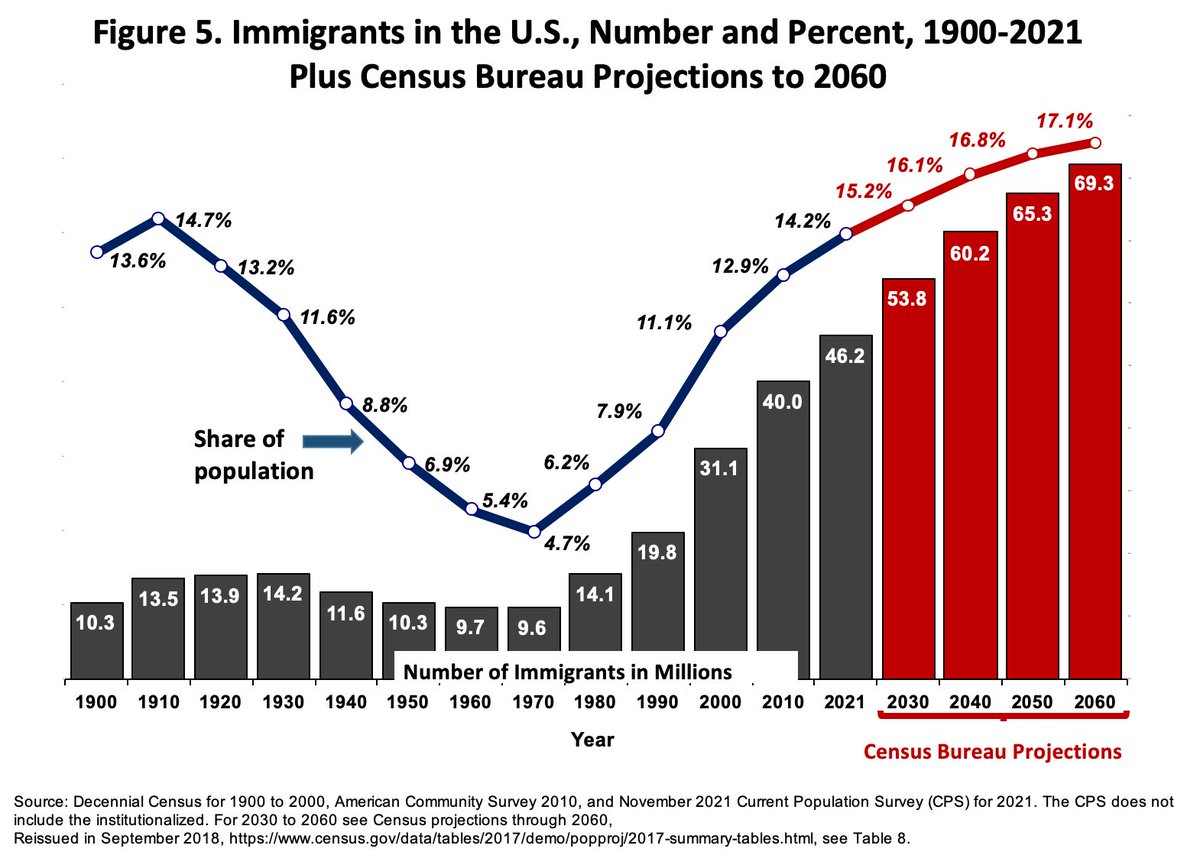
The “brown” immigration to the US really takes off in 1986, with Reagan’s IRGC.
I actually have no idea what bargain was struck here, nor any reasons, but Ted Kennedy, Reagan, and Bush the Elder were all involved.
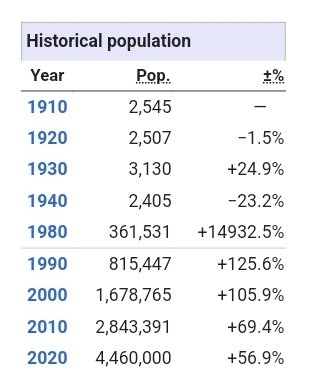
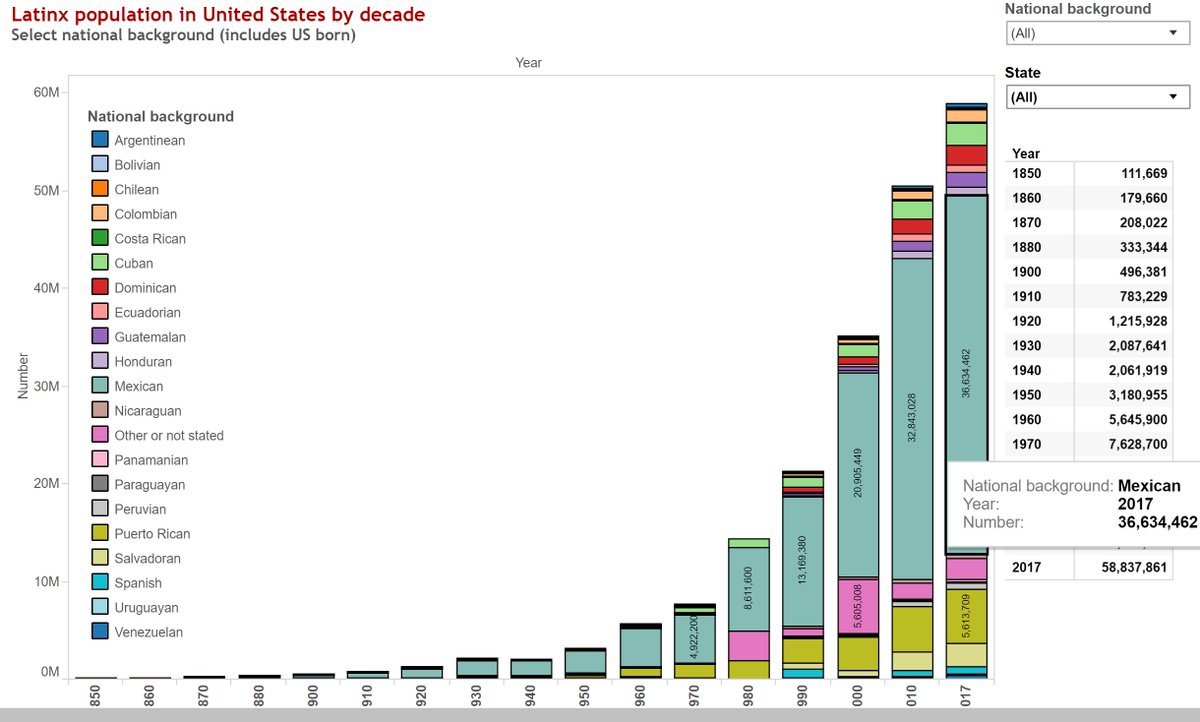
The Chinese also have their own post-IRGC boom, amounting to about half of Chinese-Americans today. So what does this have to do with the ordeal of civility? And what is the ordeal of civility? And what is a Boba liberal?
Oftentimes, annoying Jewish and Asian liberals will talk about being excluded from the WASP society of the Blond Beast Frats.
This is cope. Modern Anglo (post-Anglo?) civilization is the *least* racist civilization to ever exist.
To a large extent, indeed, an overwhelming extent, the real conflicts of the ordeal of civility were and remain *intra-ethnic*. It was not WASPs but German Jews that coined the k slur, meaning circle. It was a jab at shtetlbilly illiteracy. Indeed, a lot of German Jew critiques make a lot of sense to me seeing Ukraine, Zelensky, and Azov.
Different time, same people, same behaviors. Ostjuden were ostracized from German Jewish country clubs and German Jewish institutions. The quotas were made to keep Ostjuden out and were more than generous enough for the German Jews. Coops had exemptions to their Jewish exclusion clauses for the Old One Hundred. At the same time, the German Jews felt an ambivalent responsibility and affinity towards their poor cousins. They spent a great deal of treasure and time trying to help them.
The best ordeal of civility jokes are intra-ethnic. The ordeal of civility is a double exclusion. It is ostensibly being accepted in society and yet, despite this, constantly having reminders of your own alienness. And it is also a reminder of your alienation, being partially assimilated to the majority, from the Old Country. The country Jew is embarrassed to have his feet up on the train. He feels he has shamed the Jews and proven the unassimilated, rude stereotypes about hick Jews. But when he discovers Monsieur le Baron is a Jew, he is relieved. His brother will understand. He puts his feet up. But this, in turn, is a shameful thing for the assimilated Jew. He is ashamed and sees his own alienation from Jewish identity when he has to ask a hick when Yom Kippur is. And he is mortified when the hick puts his legs up in response. Deep down, is he the same? Is he just playacting his culture, the only one he has known? Is he doomed to be a LARPer of an alien culture with no authentic roots? The gesture of familiarity asserts a fundamental kinship and sameness beneath the mask. So many of these disputes revolve around manners and food for a reason. Both are simple, both are largely trivial, but both are also deep and largely unchangeable. The Jewish obsession over kosher, pork, and Hydrox vs Oreo is because these are the little reminders of difference. And not knowing Hebrew, not practicing kosher beyond not eating pork n oreos, Hanukkah being knockoff Christmas and not a real major Jewish holiday – these are reminders of one’s alienation from the perceived authentic native Jewish identity. Panda Express is Hydrox for Chinese people. Real Chinese do not fucking care.
Crazy Rich Asians is the ordeal of civility movie for Chinese, like Woody Allen. It’s boorish because Bobas are boorish. Crazy Rich Asians is an expression of a hope of belonging. Of being rich and Asian in a culture where that is totally secure and normal. That’s why it makes no sense to real Chinese. And of course they set it in Singapore. Of course. Not the US. When the Ostjuden made their slanderous stereotypes of WASPs, they were drawing not from nice, fluffy Unitarian Universalist WASPs, but archly self-superior, Nietzsche reading, Hitler supporting German Jews. And then they project it into WASPs. They have to do this because doing otherwise would admit their differences from their assimilated kin. It would acknowledge the double alienation. Neither fish nor fowl, but a stranger on a journey, home in no land. Boba Liberal ideas about WASPs are just garbled together from their perceptions about *me*. KMT Americans. And this intra-ethnic neurosis and resentment becomes hatred of (wholly innocent) White people for their privilege. The only privilege your average White has is fitting in. Your average White does not get referred Old Boys network opportunities from school onwards through their prestigious career. I do. And the idea of Whites being elite while being freed from grind doesn’t apply to most of them either (nor is it salient). But it applies to me. Nice parents who don’t beat you and speak English. All a bunch of concerns that matter vis-a-vis ASIANESS not Whites. Whites are thrilled by multilingual life. Whites are not caught between prestige/grind tradeoffs (they chase fulfillment, not prestige). Bobas love Taiwan, home of… Boba tea. I know Taiwan is fake because my family literally invented it for political reasons.
The biggest Taiwanese cookbook was written by a White guy. QED. The three waves of Jewish immigration, Sephardic, German, and Ostjuden, map onto Gold Rush, KMT/Hart-Celler, and IRCA.
I cringe when my fellow “Asians” talk to me about the struggle. So where does this leave us?
10-20% of new US hires at Bulge Bracket banks of high finance are H1B.
The real original sin of the Hart-Celler Sino-Judaic regime haunts it. And as I contemplate being replaced by an alien culture, my heart bleeds for Captain Trevor.
Fin.
My people architected Hart-Celler and systemically persecuted every opponent of the China Lobby as Communists using McCarthy’s HUAC (many were actually Communists), the country has been cursed for it, and Indians are taking our jobs using the rules we made. Seal the borders.
HUAC managed to suppress this book for 14 years. Why would HUAC suppress a book about Chinese people? Think about it.
Picking up from this thread because I was dissatisfied with my treatment of the Ordeal of Civility itself. Today I will discuss Talmudification, waves of elite culture, and why the Alt-Right is both literally and spiritually a Jewish Reactionary movement.
First, let’s get some operating definitions of what is a WASP.
1. Literally White Anglo-Saxon Protestant. This is usually used to denote the bulk of the founding stock population and has a meaning similar to “Amerikaner”. This is not a definition I generally use, but is common.
2. WASP as the successor elite culture that formed after the Civil War through the accord of the victorious Puritans and the Cavaliers that joined them (some Cavaliers continue unassimilated as Southern elite frat culture). This is the culture of Unitarian Ultra-Protestantism. These WASPs, as a historical cultural phenomenon and population, are the basis of the WASP mythos, the men behind the myth. These are a blend of the twin Normans of America (Puritans/Cavaliers), the Old Dutch, and German Jews.
3. The WASP Phantasm. The WASP in cultural memory. Whenever someone invokes preppy, the Blond Beast, the Aspen Ski jerk, or that whole set of tropes, they are engaging with the WASP mythos. And it is fundamentally a perception. This is not WASPs as they are or were, but WASPs as first the Ostjuden and now the Chinese perceive them. The assimilating populations draw a vector towards – not the majority – but their assimilated cousins. And that vector is used to define WASP.

With the Jews, they self-perceived as small, swarthy, and ugly. So WASPnes became an idea of being tall, beautiful, blond, and athletic. Along with this, they incorporated their experiences interacting with WASPness VIS-VIS German Jewish interlocutors. WASPs are arrogant dicks because German Jews are archly self-superior. And especially so in their main interactions with Ostjuden: condescending charity and exclusion from country clubs.
Our poor, dear cousins. What defines an ordeal of civility vs mere racism? Racism is a single exclusion. The host population dislikes or disdains the outsiders. This is why Irish don’t have ordeal of civility dynamics – they didn’t have clout or power. Irish intellectuals may think it, but can’t act. The ordeal of civility is a double exclusion. It is the feeling of being an outsider-insider. It is being in all respects accepted and welcome but still feeling apart. And to explain this, you project onto the host, especially hatred onto the host. Two pundits are currently, publicly, undergoing their own ordeals of civility: Richard Hanania and Ben Shapiro. And they each are expressing different sides of the double exclusion and the double effect. One side is the feeling of exclusion from the dominant culture despite not being excluded. Ben Shapiro is wealthy. Ben Shapiro is influential. Legions of White Boomers hang on his every word. Yet he is discontent. Why? Because when he looks in the mirror, he sees a Jew in particular, alien Jewishness. Or worse, he sees the horrific WASP Blond Beast in Cossack attire come to ravage his sister (and she like??).
So he invents a lurking, latent anti-Semitism in history’s most philosemitic nation. The mind must contrive an explanation for its own feelings of inadequacy and exclusion, so it invents that the majority is excluding it, that they are repressing a deep anti-Semitism. The other action is a pull, and it attempts to flatten the difference. This is Freudian psychology with its supposition that everyone has an inner id, or Yid. And that Yid has to be suppressed by everyone lest it flip a table. So gentile and Jew are really the same deep down. And that’s Hanania. Hanania respects all the etiquette norms and beliefs of polite WASP-Sino-Judaic society. In fact, he is more reasonable than even the reasonable insiders. He is a consummate “good arguer”. He is a “smart guy” (much like sane Shapiro’s facts and logic). But while the public self tries to conform to a picture perfect way, Hanania produces an intellectual output in his shadow: Richard Hoste.
Hoste is a racist. A big, bad, nasty racist! Hoste is a racist and Hanania is not. Or is he? Isn’t Hanania still HBD? Does he refute any factual axioms of racist ideology? He does not.
Freud dressed up the Yid as the Id to smuggle him into polite society. Hanania dresses up Hoste so he can smuggle racism in. This flattening of difference happens so the outsider no longer perceives a difference with the insider because it has been abolished.
The aim is not just to reveal everyone’s hidden Yid or racism, but to IMPLANT said racism, so as to smooth out the divide. The ordeal of civility is thus a dialectic, a signal-countersignal-countercountersignal spiral, that reconciles the newcomer and the outsider to the inside to form a syncretic culture, and it only occurs when the newcomer has some form of power or influence. So what was the effect of the Jewish Ordeal of Civility? I’m sure we’ve all seen the Woody Allen WASP dinner vs Jew dinner scene. The Jewish dinner is argumentative and uncivil but intellectual. The WASP dinner is polite but sterile and boring. How do you succeed at a debutante ball or a dinner party or a fox hunt today? Obviously the most intellectually interesting person wins. Jewish norms have been poured INTO WASP forms. The content of the Jew dinner debate with the form of the WASP dinner. And that’s Hanania is trying to do with his affect, consciously or not. He wants to be the Harvard professor, solemnly and academically lecturing, but instead of talking about a monograph on Near Eastern Trade 453-632AD, it’s about racism and why it’s okay to glass Palestine. What happened was the Talmudification of WASP culture. Nothing is sacred. Everything is subject to debate, even God’s laws. Let’s explore all subjects in a scholarly way. And let’s be damn polite about it. And Americans are a Chosen People, God’s beloved Israel. Hence the joke in Tablet, which is barely a joke: How wonderful it is an American Jew and doubly chosen. The Talmudification of the American elite is so complete that Americans are OFFENDED if American elites, especially professors, the keepers of our sacred flame, fail to dispute and argue everything in a reasonable way and engage in proper Talmud study. Only progressives can accept, even just in principle, the idea of a professor as an idealogue and moral firebrand – a theologian. And truebred WASPs are even angrier than normal Americans. The idea of Harvard as Woke Theology camp makes them livid. They tear up their checks. And this is a supreme historical irony because Harvard was founded as a theology school and Puritan foreign policy from 1870-1950 was basically *all* moral crusade.
But the Ordeal of Civility succeeded in putting a tiny Yid doing Talmud study in every WASP. Modernity and WASP modernity is thus Talmudic. As Slezkine would put it, Mercurian.
So what happened with the Chinese? Orange chicken is the Hydrox of the Chinese. Just as the Ostjuden Talmudified the WASPs, the Chinese Mandarinized the WASPs.
Study Hard Mathematic. What are the anxieties of Asians, as seen from Asian women TikToks? The imagined WASP of the Ostjuden was sporty and sexy because that was their perceived lack. Accordingly, they made WASPs sportier and sexier by shifting culture that way.
This is American Pie and Animal House. The Asian equivalent is ambivalence about study culture. The Ballad of the Tiger. People thought Chua was writing a self-help book when it was, in WASP-Jew fashion, a neurotic and witty self-reflection (ironically demonstrating her own successful assimilation). She makes the Chinese-Jew comparison several times and asks, rhetorically, if Chinese culture is so superior, why is she using Chinese methods to grind her kids into Western art and culture?
This shows her internalization of elite THOUGHTFORM. The Asian girl neurosis is wanting to achieve elite status without the grind. She therefore invents an archetype centered on her own neurosis, just like the JockWASP.

As an aside, there are actual Literal White Anglo-Saxon Protestants making up the bulk of the college-educated at poorly ranked but expensive Small Liberal Arts Colleges like Elon University, who actually are blonde and beautiful. They don’t run anything.
And just like the JockWASP, the himboWASP is a reflection of an intraethnic anxiety with the assimilated cousin rather than the WASP-qua-WASP. There have been East Asians around long enough to form generational nepotism networks. The WASPs largely don’t build nepotism networks because they’re honest. The Jews do, but ultimately the Chinese are from a clan culture. And clans take care of their own. The guy in the TikTok is really an intra-ethnic projection from relations with elite CHINESE. WASPs with enough money and clout don’t feel the need to go into a Study Hard Math job. They’d rather pursue the humanities, the arts, or some personal project. IB is not actualizing. Chinese are overrepresented at every level of the military-industrial complex. They are overrepresented at every level in high finance. And they pull strings for their kids because unlike WASPs, they see American mandarinship as intrinsically good.
About 70% of Asian-American clearances are Chinese or Taiwanese. They’re about 5x overrepresented.
Chinese Americans benefit disproportionately from the war economy.
But the effect of the dialectic is to mandarinize the WASP along the axis of dispute. Namely, the culture becomes more Chinese.
Study Hard Mathematic. The perception Chinese have of WASPs is out of date because the dialectic reaches back into WASP culture and changes that too!
Now we are all sons of study hard mathematic 12 hour.
You can see from the data WASP kids aren’t himbos. Private school kids study MORE than public.
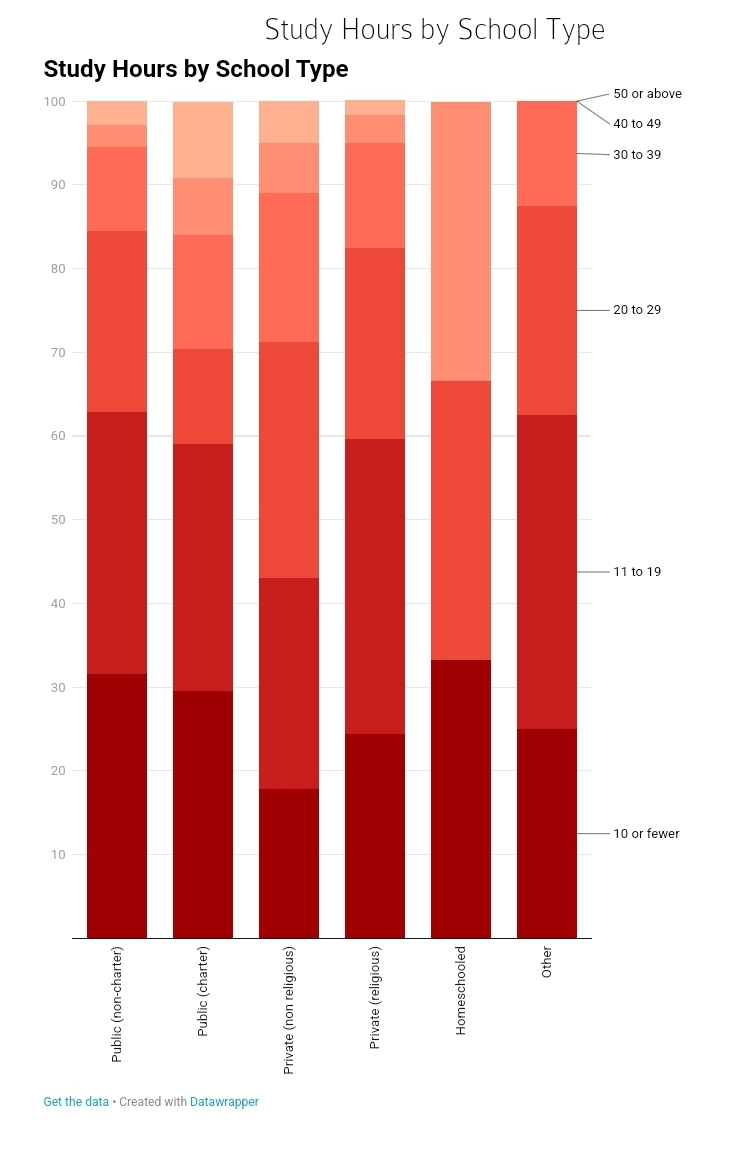
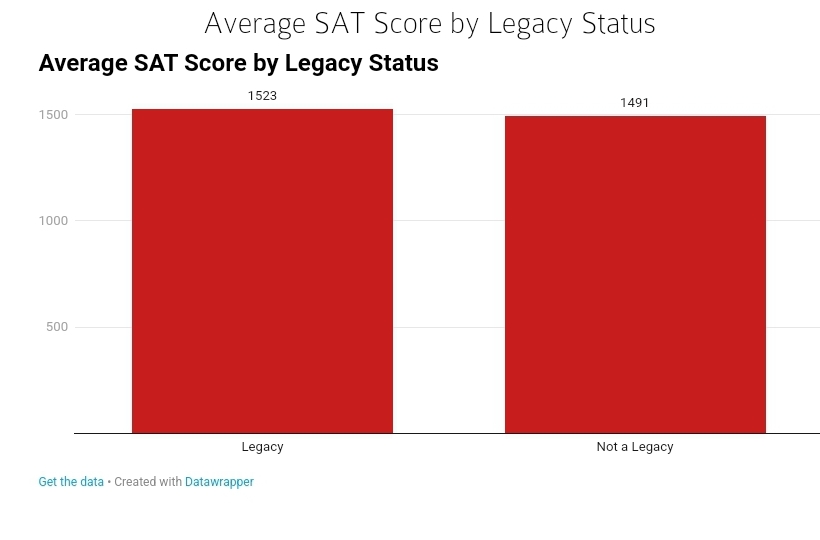
School hours now go from 8 to 5 with a median of 20-30 study hours on top. That’s two full time jobs. The legacy kids are SMARTER, not dumber. Legacy becomes increasingly a *de*-merit, a stigma.
And nobody is having sex with “bimbo gf”.
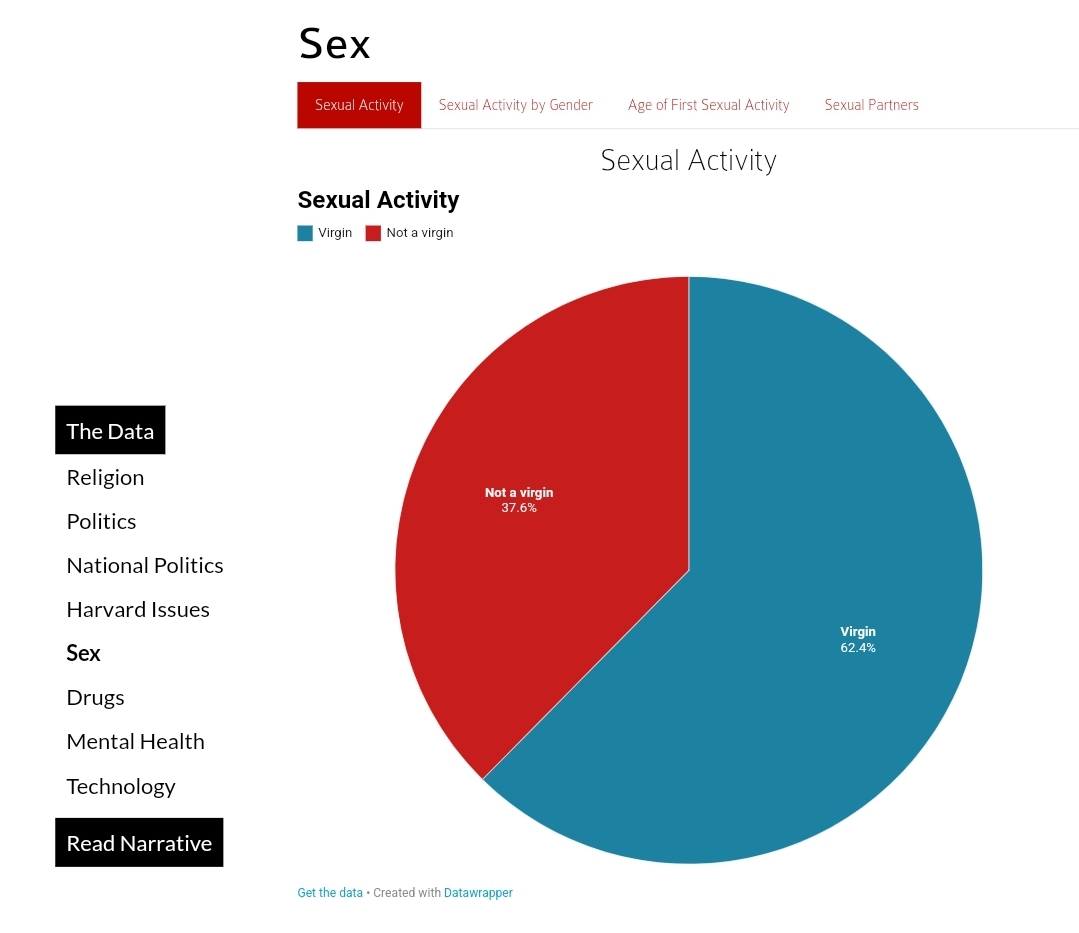
And this bleeds over past school into the elite workplace. Young elites grind long hours at BigLaw or BB because they ground their way through school and college. Junior bankers spend 80hrs/wk doing math in Excel to produce models of no value to anyone, least of all themselves. The important thing is not just the hours but the pointless, grindy nature of those hours. Even when white shoes worked hard in the past, they worked *well*. They had an idea of the good life: Otium. To Talmudically debate. To knock off at 3 to golf, the 3-6-3. In short, thank you, Asian women, for being a shanda for the goyim. Every time one of them pops off I feel racially transmogrified into Long Duk Dong. Now where does this leave the Alt-Right?
What are Talmudic values? The free debate of all ideas, including the sacred, the reference to teachers of texts, and the self-conception as God’s chosen people.
That’s the Alt-Right. The Alt-Right spends all day discussing old sacred texts about racism, debating every aspect of reality, trying to protect the racial integrity of God’s Chosen People (Huwyte Americans), and does it all with a generous amount of Jewish humor through satiric memes. The ideal of Alt-Right manhood is not an aristocrat like a feudal lord. It’s an aristocrat like Kermit Roosevelt. It’s a spook and a scholar. It’s a WASP-Jew. The ideal is a gentleman with CIA papers who blows the smoke off his pistol as his lover asks how he knew the dead man was the mole.
Simple! I observed the bracyphelic index of his skull and noted his long gracile legs and realized he was Kalenjin, not Masai – a spy. A runner. When they say BAP’s Talmudic network, that’s true on a spiritual level. This part of Twitter stands against both the waning Study Hard Mathematic era and the rising Brahmin Raj.
RETVRN to TALMVDIC values.
@RobertDKelley points out the two way shift. As Jews influenced WASPs, WASPs influenced Jews, instilling in them Protestant values about the sacredness of work, dignity, and the heroic. Woody Allen’s Sleep is a hero in the end after all.
@RobertDKelley I would say American Chinese care more (in general) than Chinese Chinese. Care about strangers, the law, the sacred. No “cha bu duo”.
A lot of you are interested in foreign influence, so I thought I’d walk you through the mechanics of foreign political lobbies by dissecting the most powerful lobby in America… circa 1965.
Let me tell you the story of the rise and fall of the China Lobby. Back in 1965, AIPAC had just been founded. It was a little grub. Who ran American foreign policy?
The Kuomintang mafia, placed into this position by WASPs and German Jewry.
And this is a story that starts with everyone’s favorite Emperor-President, FDR. FDR was a Great Man, if not a good man. He had a dream: to see America rule the world. And he would be President until the day he died. He had summoned his secretaries of his departments to his office where he told them his vision.
“The natural border of America is the Rhine.” Henry Morgenthau and Stanley Hornbeck were eager to implement FDR’s vision in the Far East. Morgentau would pioneer a number of techniques still useful and used to this day. First of all, there’s foreign aid. The US produced a tremendous amount of agricultural products. Henry Morgenthau extended a $50mm loan ($1bn in 2019 dollars) via the Reconstruction Finance Corp to the KMT to buy American farm products. There was internal opposition to this. After all, the charter of the Farm Credit Administration was to provide credit to farms. American farms. American farms in America. It was not to provide a very large sum in a then much smaller 1930s government to foreign governments. FDR gave it the go-ahead. By making a foreign power the primary buyer of certain farm products, you behold the producers of said produce to the interests of that foreign power, and atrophy their ability to independently probe markets by encouraging dependence. Secondly, you can provide financial aid. Morgenthau arranged for treasury to provide Chiang with $100mm in aid. How did he do that? The aid was disbursed to the KMT which then used to it to buy Treasury assets, such that the money technically never left America. Furthermore, the US provided a swap line guarantee of $50mm of bullion to keep the Yuan stable, thus pegging the Yuan to the dollar. Similar techniques were used during the Eurodollar bailouts following 2008. A swap line allows you to exchange local bad money for good. Thirdly, media control, which was Hornbeck’s realm. Hornbeck supported an organization, the America Committee for Non-Participation in Japanese Aggression, run by Frank and Harry Price, China hand missionaries. While Morgenthau and his director of research, George Haas, were waging the internal government opinion by writing research reports talking about the necessity of war in China against Japan, the Prices would run an infowar on the US people. How do you control the media? Via ad revenue funding, direct ownership of news companies, and Deep State pressure, coerce the editorial board to be on your side. Then distribute a party line to all your news orgs, a template article with all the points to hit. The template is given to junior reporters to regurgitate, putting their own spin on the words. Reporters who do this faithfully are rewarded. Reporters who don’t are denied op-eds, valuable postings, and eventually fired and blackballed. And what was that party line? The Price Committee drafted three main points:
1. The fascist Japanese “New Order” was a threat to the US-led “Open Door” agreement
2. America had a duty to support Japan as a historically anti-Sinitic country that had bankrolled Japan’s rise
3. The Chinese were God’s Chosen People, destined to carry out his will in the Far East. Accept this as a tenet of Episcopalian faith.
To reinforce this, Chiang gave a 1938 speech “Why I Believe in Jesus”, and Madame Chiang did a Mainline church tour.
Whites are very gullible. In the Gallup poll of October 1937, only 37% of Americans supported a boycott of Japanese goods. By April 1938, 65% favored the boycott. Support was unevenly distributed, with the highest levels of support coming from professional class Northeastern Whites. Of course, the American public had a vague suspicion that something was up! Why would the US embargo Japan? What’s with all these articles about, uh, the Chinese? What a weird country we live in.
They were scared and confused, and they needed answers. Charles Lindbergh, hero pilot, gave them those answers. America First! No foreign entanglements! Buoyed by popular outcry, Congress passed the 1938 Foreign Agents Registration Act to stop the subversive activity of foreign agents leading America to war. Anyways, Hornbeck simply used bureaucratic fiat and procedural manipulation to give the Chinese an unprincipled exception to having to register foreign agents. Lastly, we have military aid, which was the most important part of the nascent China Lobby. How does military aid work? The US gives money to an ally, and that ally uses those dollars to purchase the US weapons of its choice, with some limitations on selection (“monkey models”). In addition to purchasing arms, the US also engages in joint defense research projects. In these, the US funds labs in both the US and the allied country to conduct advanced research on military technology using US funds. Examples: Lasers, Merkava tanks, and Taiwan Semiconductor. This has the dual benefit of advancing NATO military technology and building up the defense industrial base of the client. I mean, dual for the client, of course. With the regular aid dollars, the target country buys US weapons. And those US weapons come from defense contractors. Those defense contractors have a procurement chain, which is very politically fraught. Every megacontractor relies on countless SMB subcontractors. One of the duties of a Congressman is to secure as much defense pork for their home district as possible. This is political patronage. Defense executives negotiate with Congressmen to decide on where to allocate their precious contracting and subcontracting dollars. Now suppose you were able to inject citizens with dual loyalties into this procurement process. If you had your American national, Wang Chang, broker a deal for the weapons Wang’s department manufactures, then he can allocate those subcontracts to politicians loyal to Taiwan. Luckily, there aren’t such hypothetical citizens with dual loyalties in the Military-Industrial Complex.
Look at these statistics. Now consider this: During the Cold War, these statistics were far, far more skewed towards Chinese.
The modern DoD MIC has 5x Chinese overrepresentation. The Cold War MIC was more like 8-10x. I shouldn’t make up a racist name like Wang Chang. We can just look at who ran Lockheed’s Advanced Aircraft program: Don Tang.

In 1990, 2.7% of America was Asian-American and 0.7% was Chinese. 24% of the technical staff at Hughes was Asian. Chinese were 11% of the management at TRW. How do I know this? Because the China Lobby constantly propagandized about the Bamboo Ceiling. Until 1993, the message was clear. These statistics clearly show America is a racist, anti-Sinitic country and meritocracy has not yet triumphed! Until the management of Lockheed looks like the 50% Asian UCLA engineering class, America discriminates against Asians. Congressmen who went along with your lobby got cushy revolving door jobs alternating between a defense contractor and K Street – perhaps we should call it Kuomintang Street.
And the others? How do you build Congressional support for your lobby? First, you reward your friends. But also, you punish your enemies. The primary means by which candidates are controlled in America are the low turnout primary races. For the rank-and-file members, control is simple and relatively light. Prospective candidates are grilled on where they stand on a lobby’s key issues, given as a survey or interview. If you pass, you get an endorsement from the lobby and support in your primary race. Those who refuse to answer correctly, or who later defect, have the lobby support their opponent in their next primary race. And because primaries are so low turnout and so low cash, this is often enough to decide the race. In addition to Congressional rank-and-file, you need leaders who will make your case and whip the membership of your congressional caucus. For the China Lobby, we have Bob Dole and Barry Goldwater.


Leaders require higher levels of alignment with your cause. Allow me to illustrate two general avenues. The first and better one is ideological alignment and ethnic affinity. The Chinese are good to the Jews, the Jews are good to the Chinese. Hornbeck and the Prices, China hands. Morgenthau and George Haas, both German Jews. In short, they felt a bond with the Chinese and their ethnic group interest. Or you can substitute an ideology like Progressivism or Anti-Communism. Barry Goldwater was a true believer and a true friend of Taiwan until the end. He never in his life took a step on CCP soil, even long after it was clear the cause was lost. The Jews would be good to the Chinese and the Chinese good to the Jews.
These are your best men. The other method? Hard control. Cold hard cash. Bob Dole was registered as a Taiwanese foreign agent. How much money did he report getting?
$350,000. A year.
That was a lot of money back then. In practice, what you give your leaders will be a mixture of both. It’s easy to be a true believer for the cause that feeds you. And it’s natural to reward those who you like and see as your ingroup. By 1965, the China Lobby was at the height of its powers. And it would enact a bill that was the culmination of years of influence work: The Hart-Celler act.
Finally, the principle of unlimited Ostjuden and Chinese immigration would be enshrined as law.
But every act has blowback.
We must now speak of the decline of the China Lobby and how, in general, an ethnic lobby may fall.
Just like how your leaders are kept loyal through hard and soft power, so too is your group’s power. Soft power is maintained through narrative control as created through friendly media outlets. But it also requires a broadly sympathetic population. A lobby is not necessarily supported by a random sample of a national population, but usually has certain ethnic bases. The fortunes of the China Lobby rested, in large part, on a substrate of Mainline Protestant Professional Whites, the only demographic really broadly sympathetic to their propaganda. As that group declined, so did the lobby’s soft power.

In that sense, the Hart-Celler Act was both a triumph of Chinese power and a massive self-inflicted wound. It began to change America’s demographics in an unintended way, a process accelerated by the 1986 IRGC. These new Americans did not buy Taiwan’s bullshit.

And while the Ostjuden were broadly sympathetic to Taiwan, their ethnic concerns began to take front seat over Taiwan, especially post-1967, until AIPAC became the guiding light of US foreign policy. This was still largely fine. The Greatest Ally was a Great Ally to Taiwan too. While your lobby can still exert a lot of influence as the peak comes (the start of decline is by definition the true high point of power), and even almost install your Congressional leader, Goldwater, as President, once you lose soft power, the clock is ticking.

And to lose hard power is fatal. If your ethnic lobby loses control over the institutions that provide its wealth and power, it has nothing. You can whine all day about your ethnonarcissistic grievances – nobody cares. Who weeps for Artsakh?

In 1993, the USG downsized the MIC in the infamous “Last Supper”. The Cold War money train was over. Contractors were forced to downsize, merge, and scale down operations. Never again would the China Lobby have the wealth to buy politicians.
The China Lobby is still around, in a smaller form, as the Congressional Taiwan Caucus, one of the largest Congressional caucuses. But it can’t call the shots like it used to. The same could happen to other lobbies.

When the Crusader States stopped getting a regular stream of men and material from the West, they disappeared back into the sands. Some should remember when they deal with America.

In 2009, John Newhouse, writing for Foreign Affairs, the mouthpiece of the Council on Foreign Relations, talked about a rising new star in ethnic lobbying.
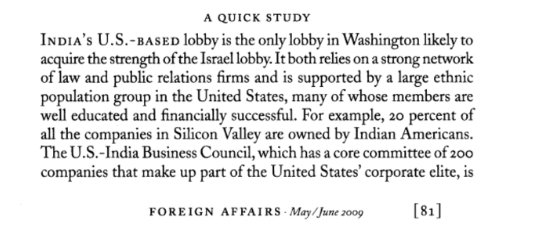
The India lobby was incredibly well funded and throwing its weight around. But what kind of country had we made, lamented the Mainline Protestant writer, that our Congressmen were so easily bought and sold by every manner of foreigner? And then, less than a decade later, he died. Wilmot Robertson wrote that all politics is a gloss for ethnic and racial conflicts and interest.
So what do you call it when Nimrata and Cortez propose moving 1mm Palestinians to Long Island to build a new Gaza next to the capital of world Jewry?
oy vey shut it down
